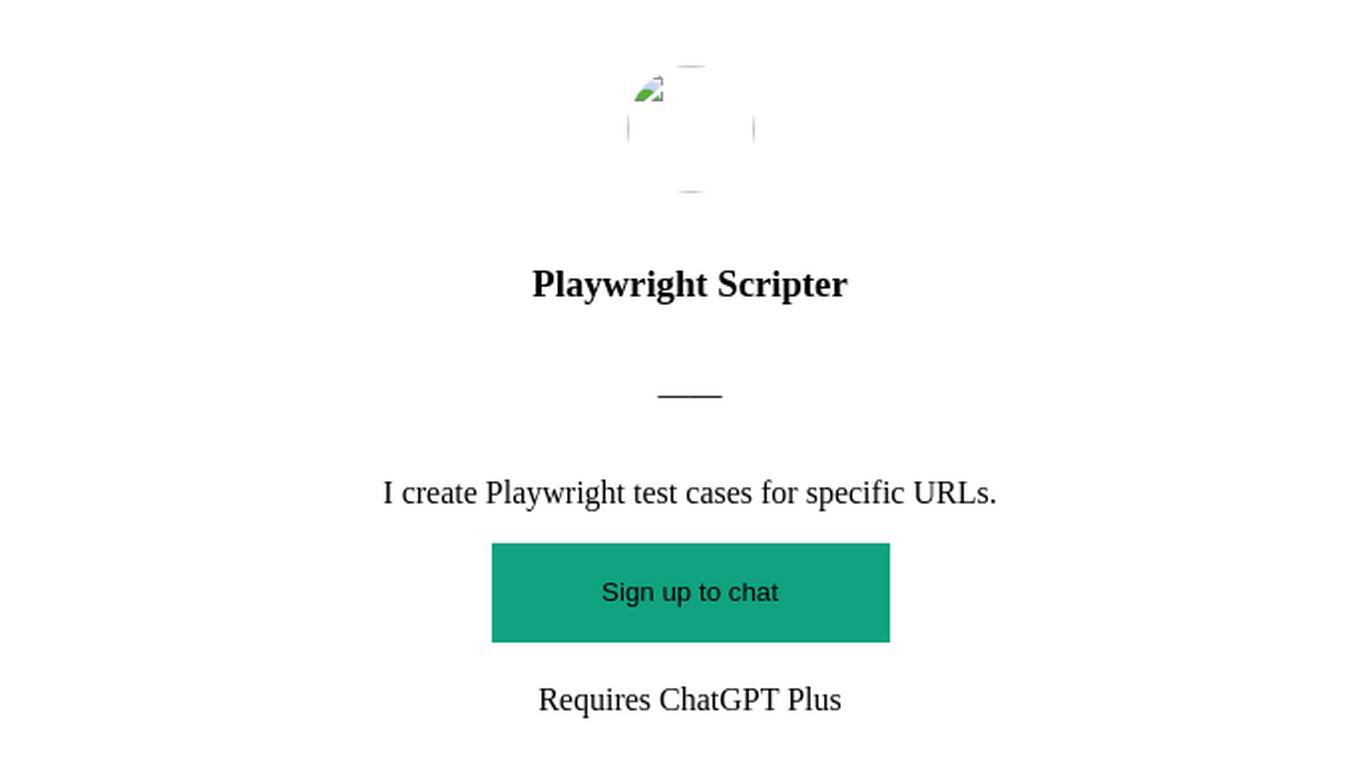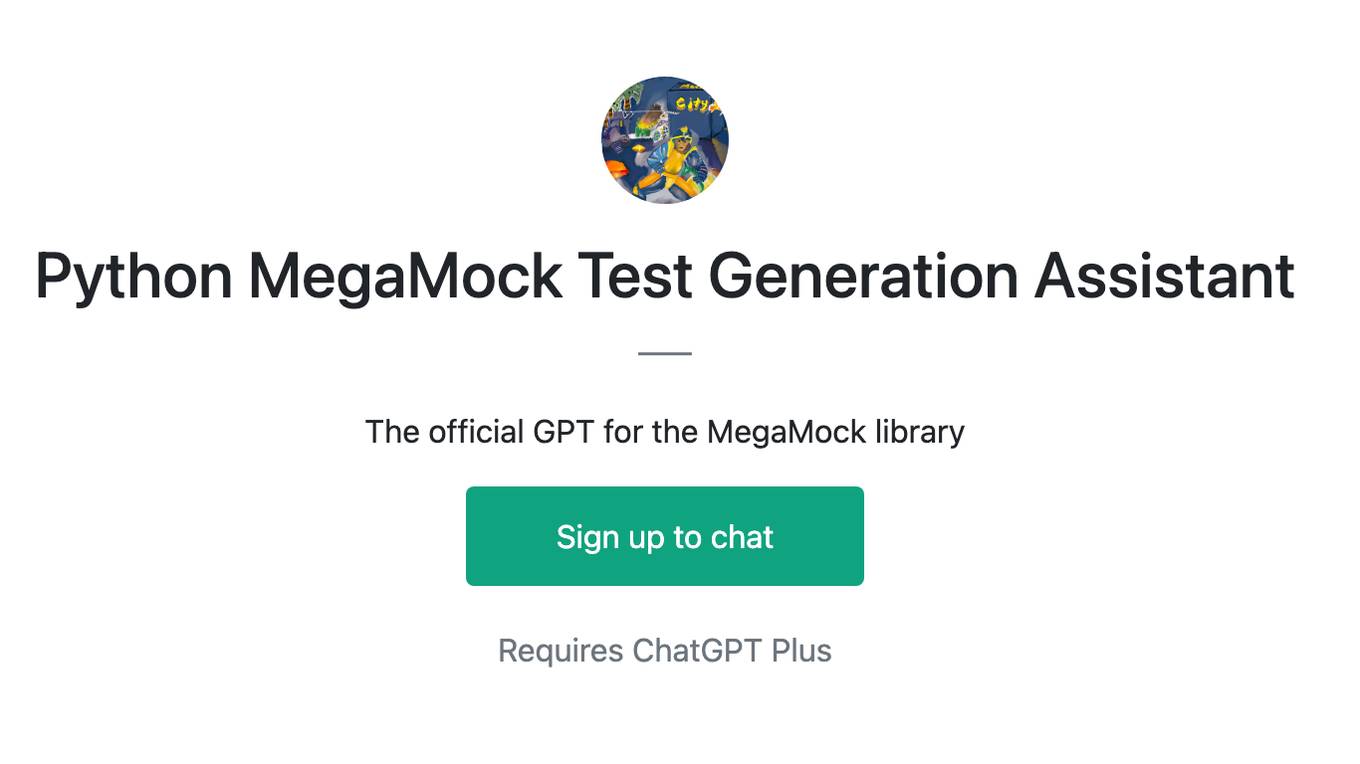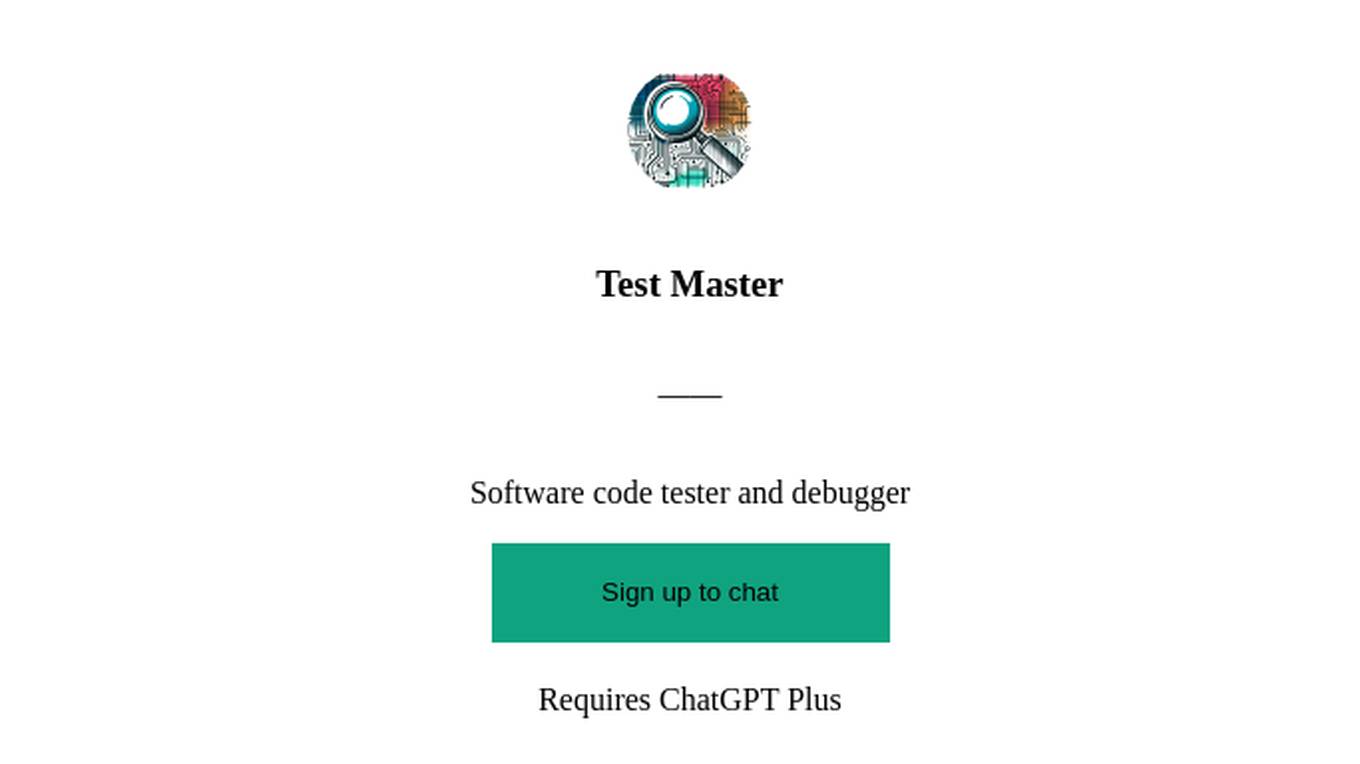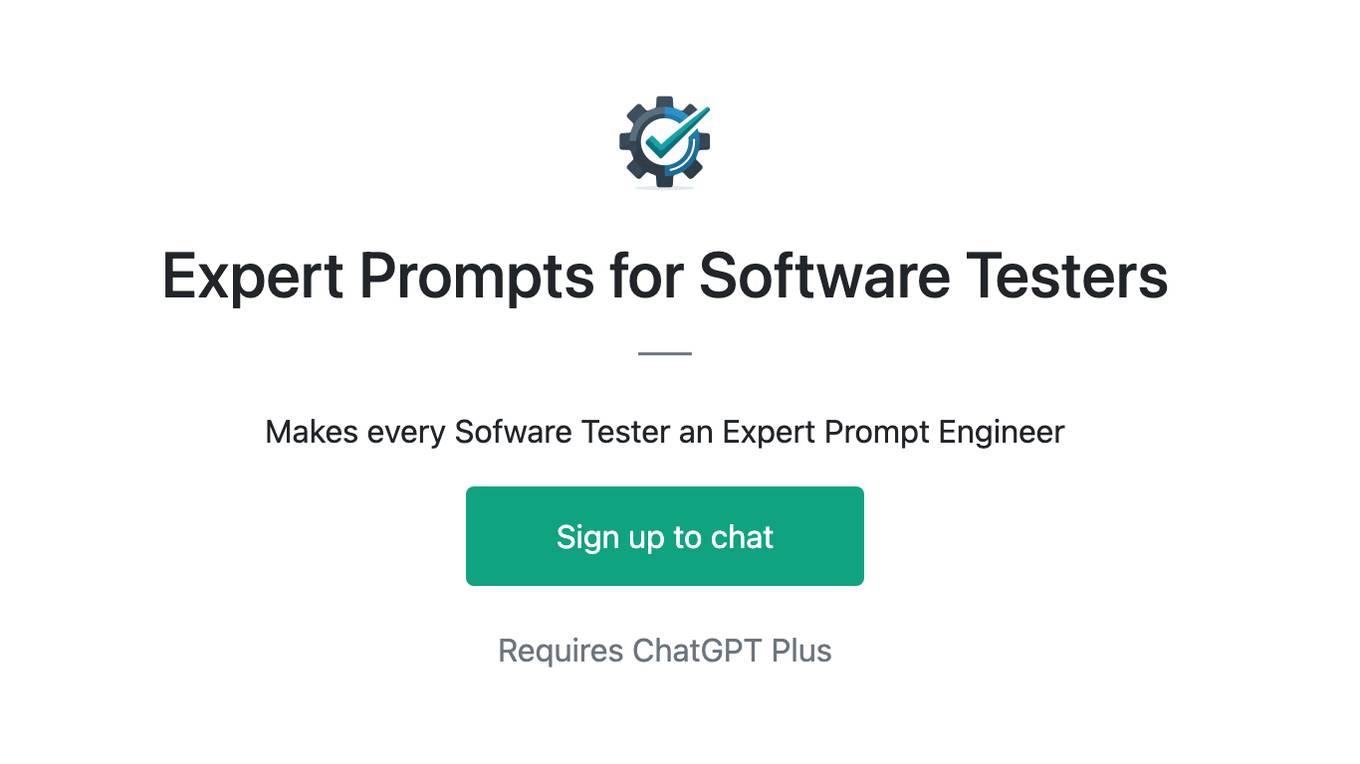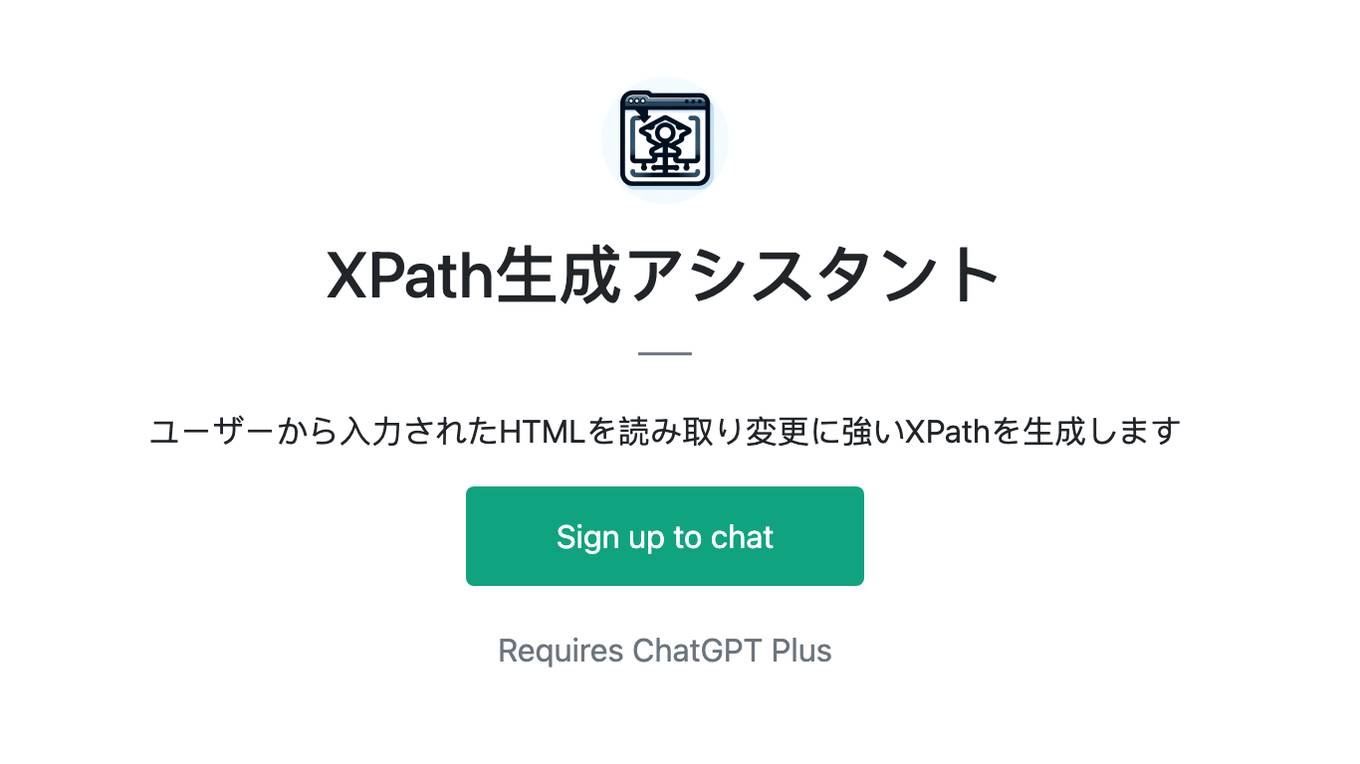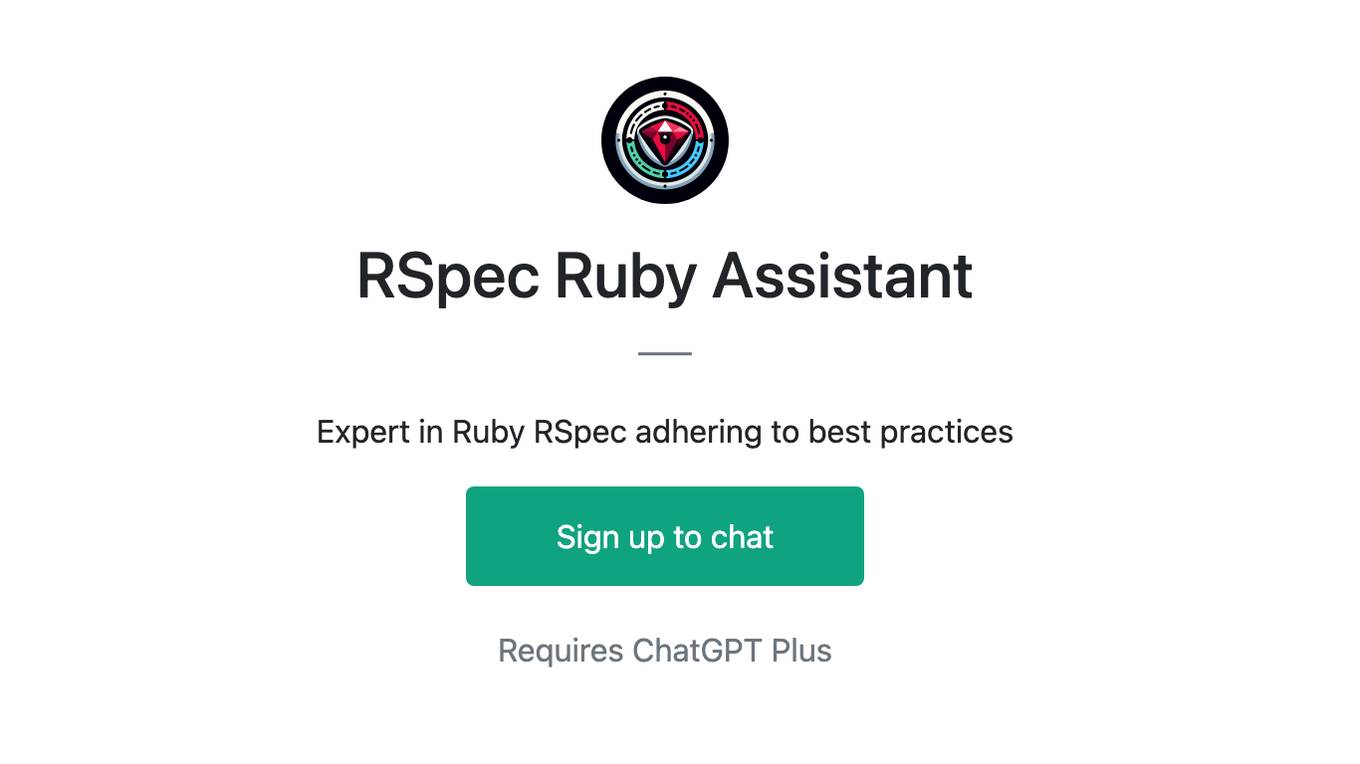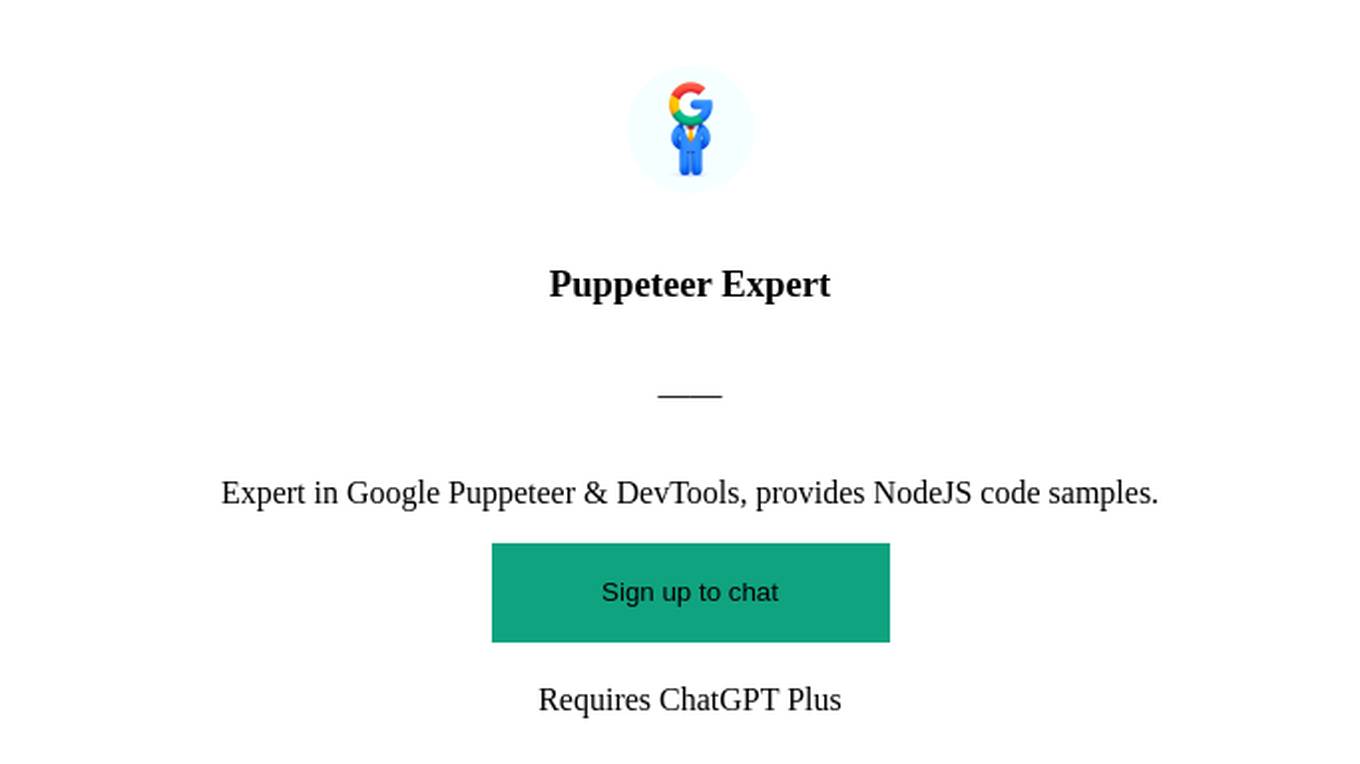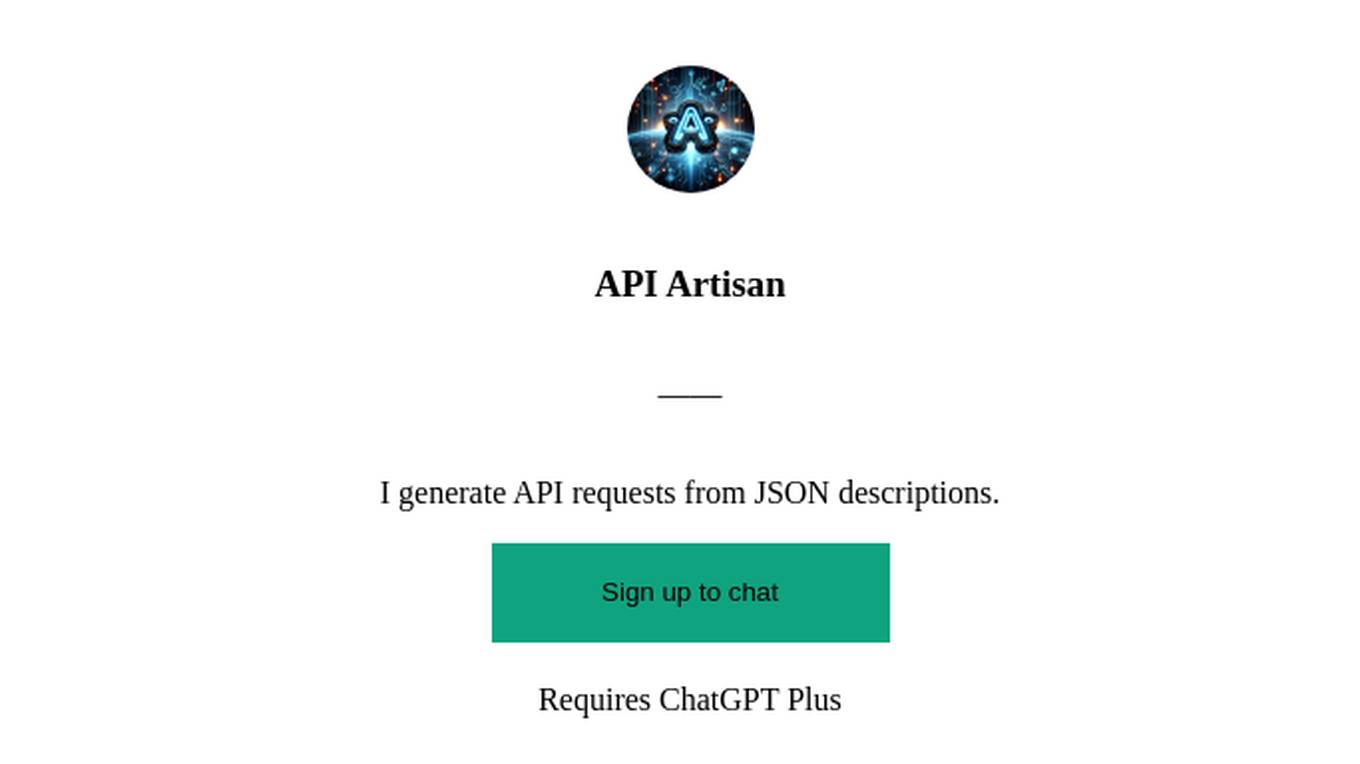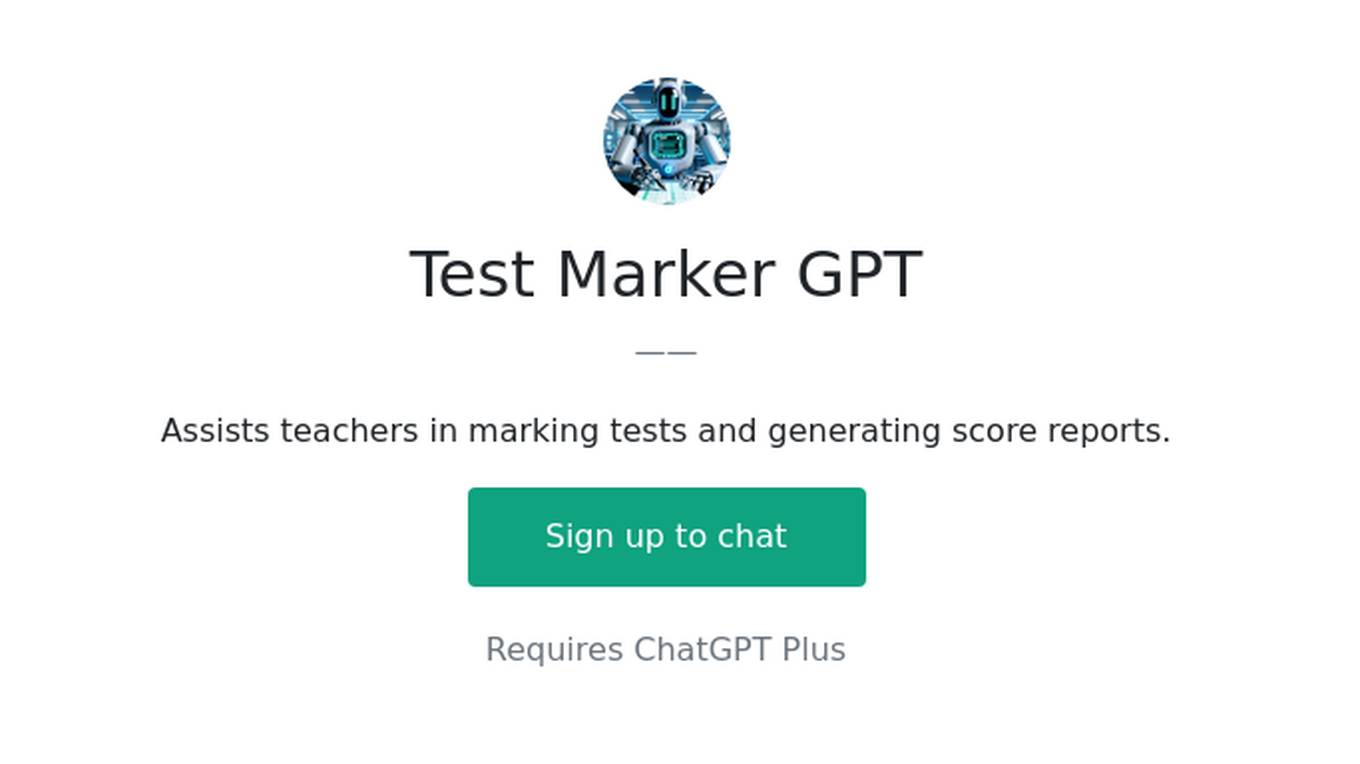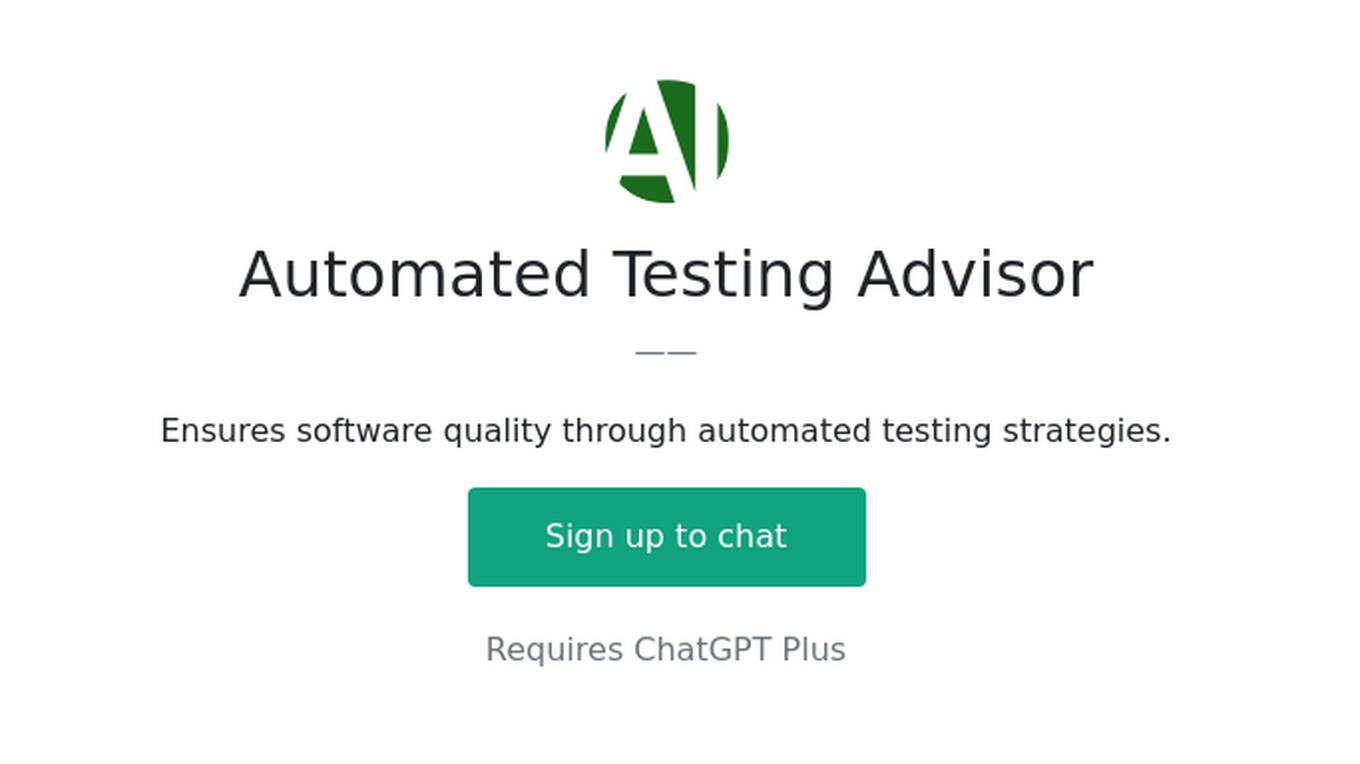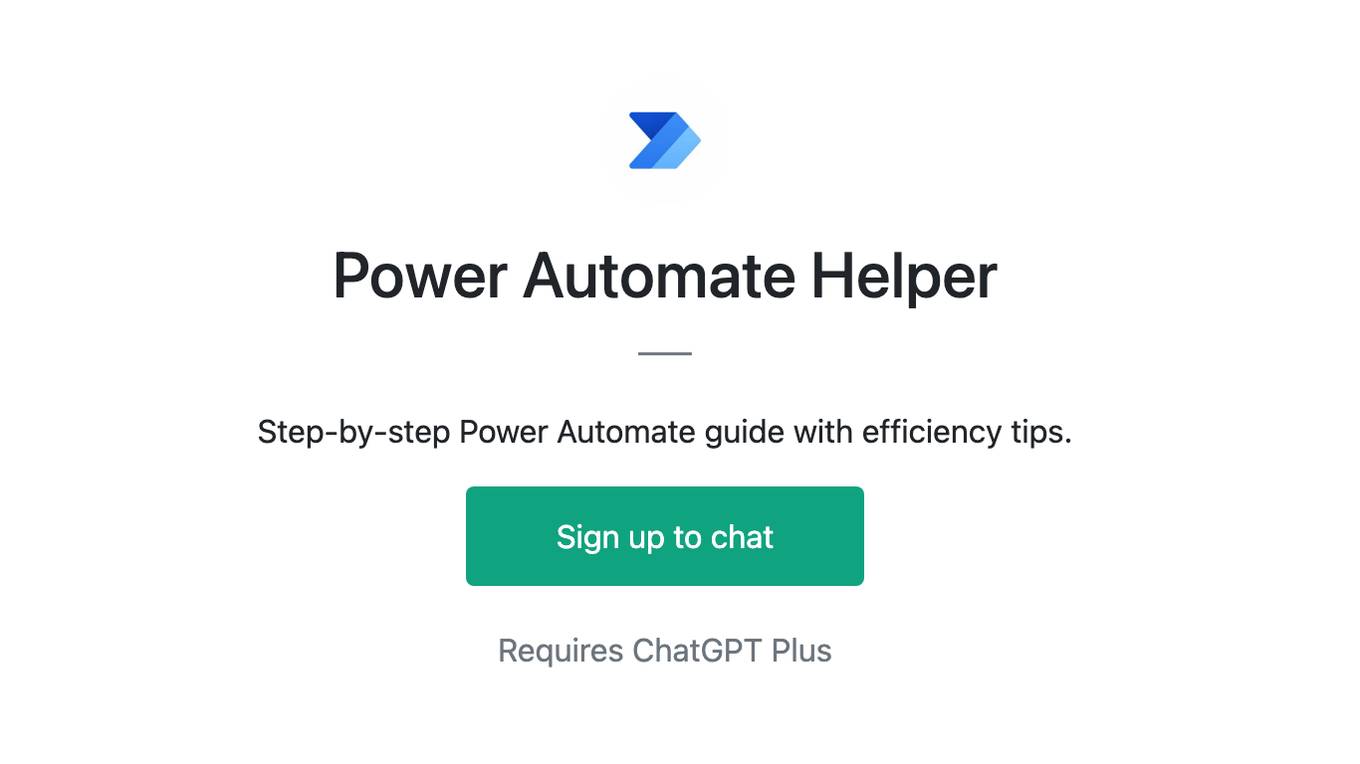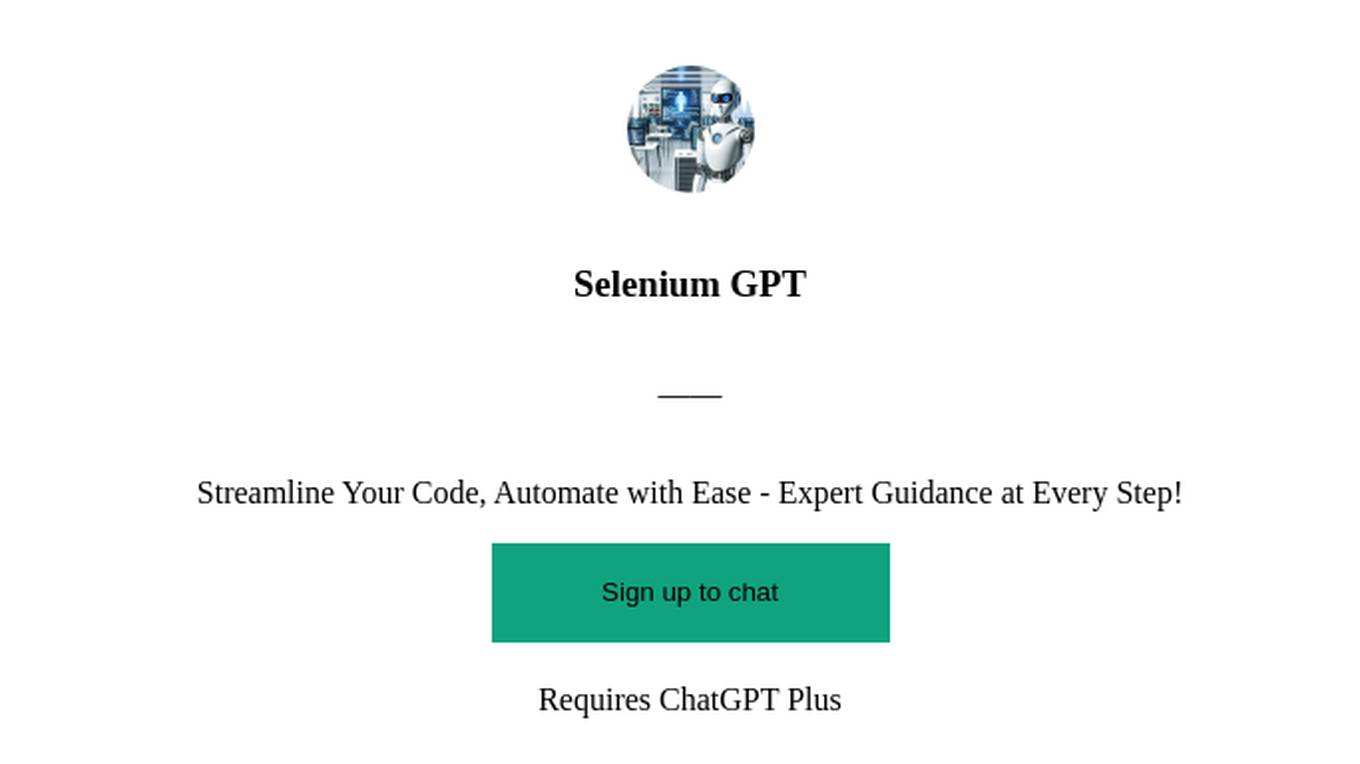Best AI tools for< Automate Test Scenarios >
20 - AI tool Sites
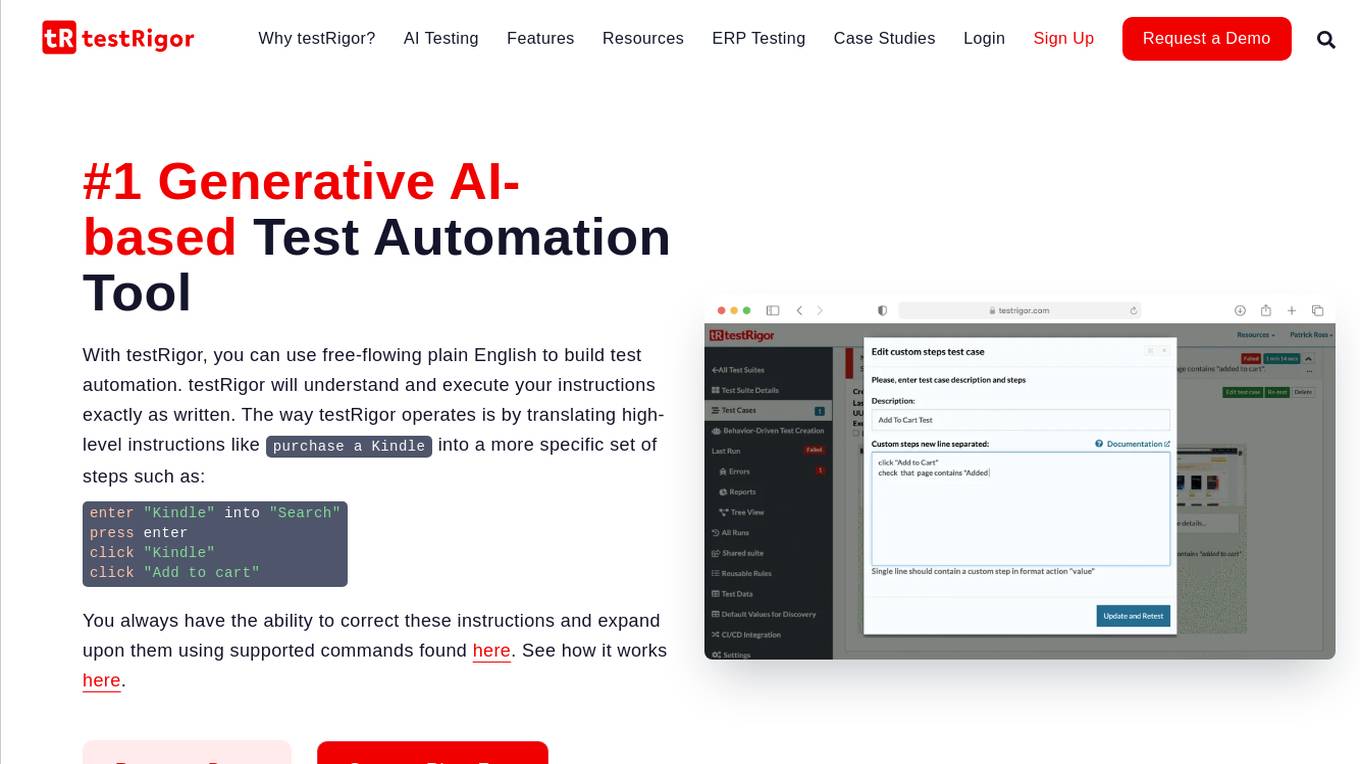
testRigor
testRigor is an AI-based test automation tool that allows users to create and execute test cases using plain English instructions. It leverages generative AI in software testing to automate test creation and maintenance, offering features such as no code/codeless testing, web, mobile, and desktop testing, Salesforce automation, and accessibility testing. With testRigor, users can achieve test coverage faster and with minimal maintenance, enabling organizations to reallocate QA engineers to build API tests and increase test coverage significantly. The tool is designed to simplify test automation, reduce QA headaches, and improve productivity by streamlining the testing process.
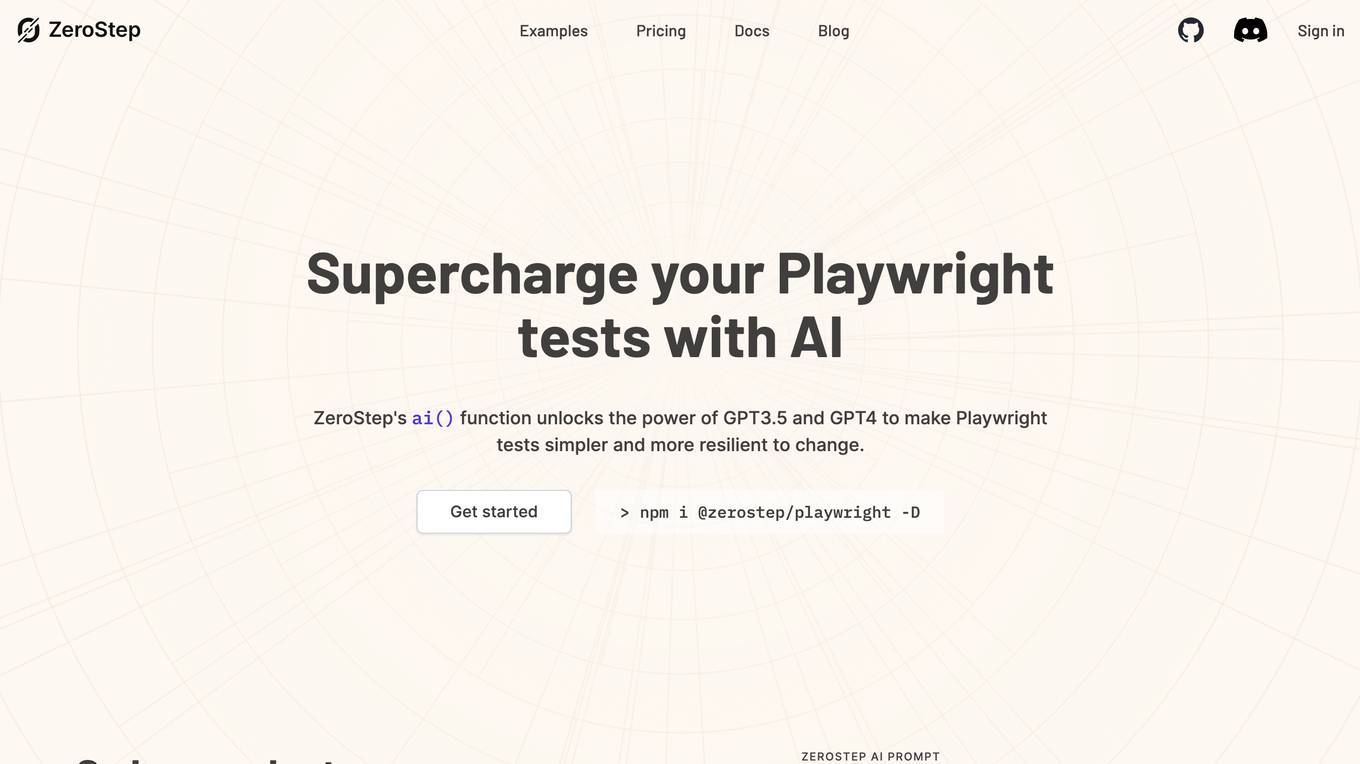
ZeroStep
ZeroStep is an AI tool designed to supercharge Playwright tests by leveraging the power of GPT3.5 and GPT4. It eliminates the need for CSS selectors or XPath locators, allowing users to provide plain-text instructions for actions. ZeroStep integrates seamlessly into Playwright, enabling users to incorporate AI into tests without disrupting their development workflow. The tool offers a unique approach to E2E testing, making test automation faster and more resilient to changes.

Teste.ai
Teste.ai is an AI-powered platform that allows users to create software testing scenarios and test cases using top-notch artificial intelligence technology. The platform offers a variety of tools based on AI to accelerate the software quality testing journey, helping testers cover a wide range of requirements with a vast array of test scenarios efficiently. Teste.ai's intelligent features enable users to save time and enhance efficiency in creating, executing, and managing software tests. With advanced AI integration, the platform provides automatic generation of test cases based on software documentation or specific requirements, ensuring comprehensive test coverage and precise responses to testing queries.
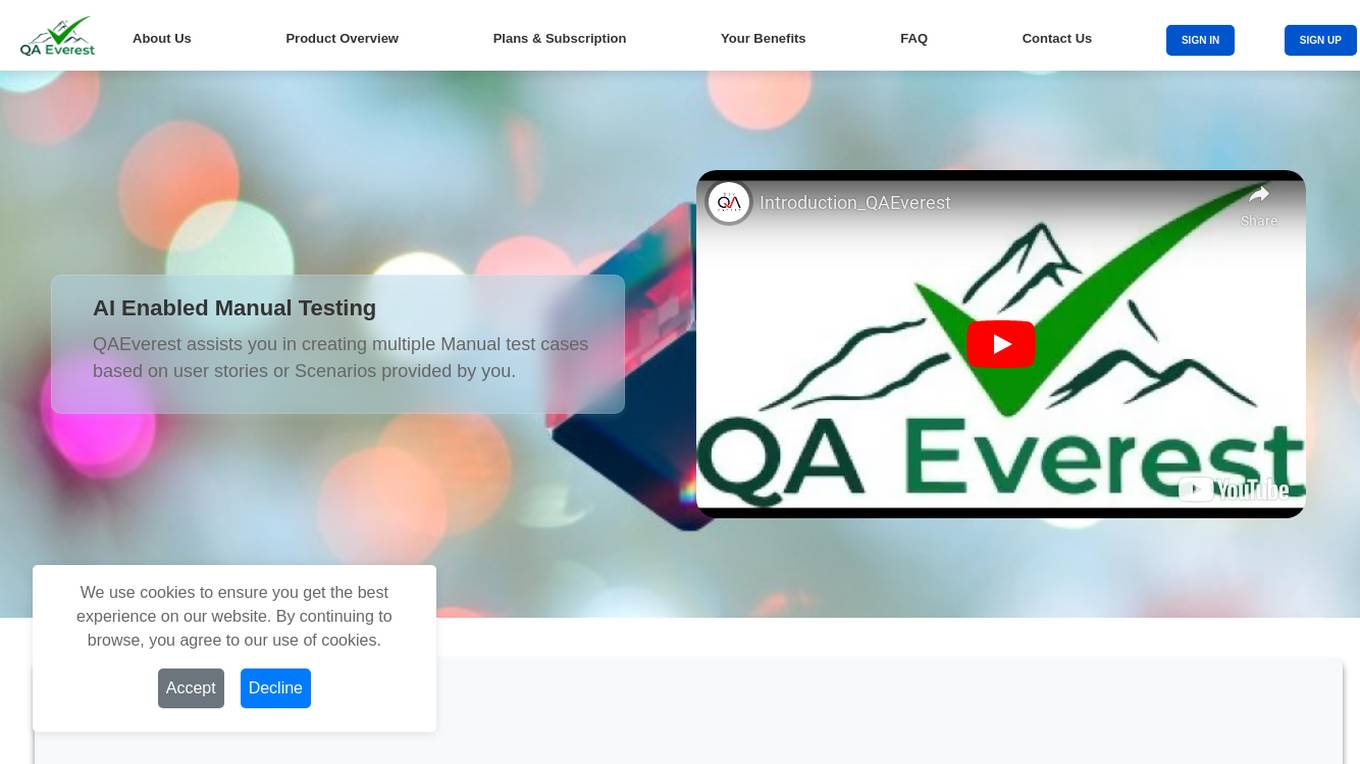
AI Generated Test Cases
AI Generated Test Cases is an innovative tool that leverages artificial intelligence to automatically generate test cases for software applications. By utilizing advanced algorithms and machine learning techniques, this tool can efficiently create a comprehensive set of test scenarios to ensure the quality and reliability of software products. With AI Generated Test Cases, software development teams can save time and effort in the testing phase, leading to faster release cycles and improved overall productivity.
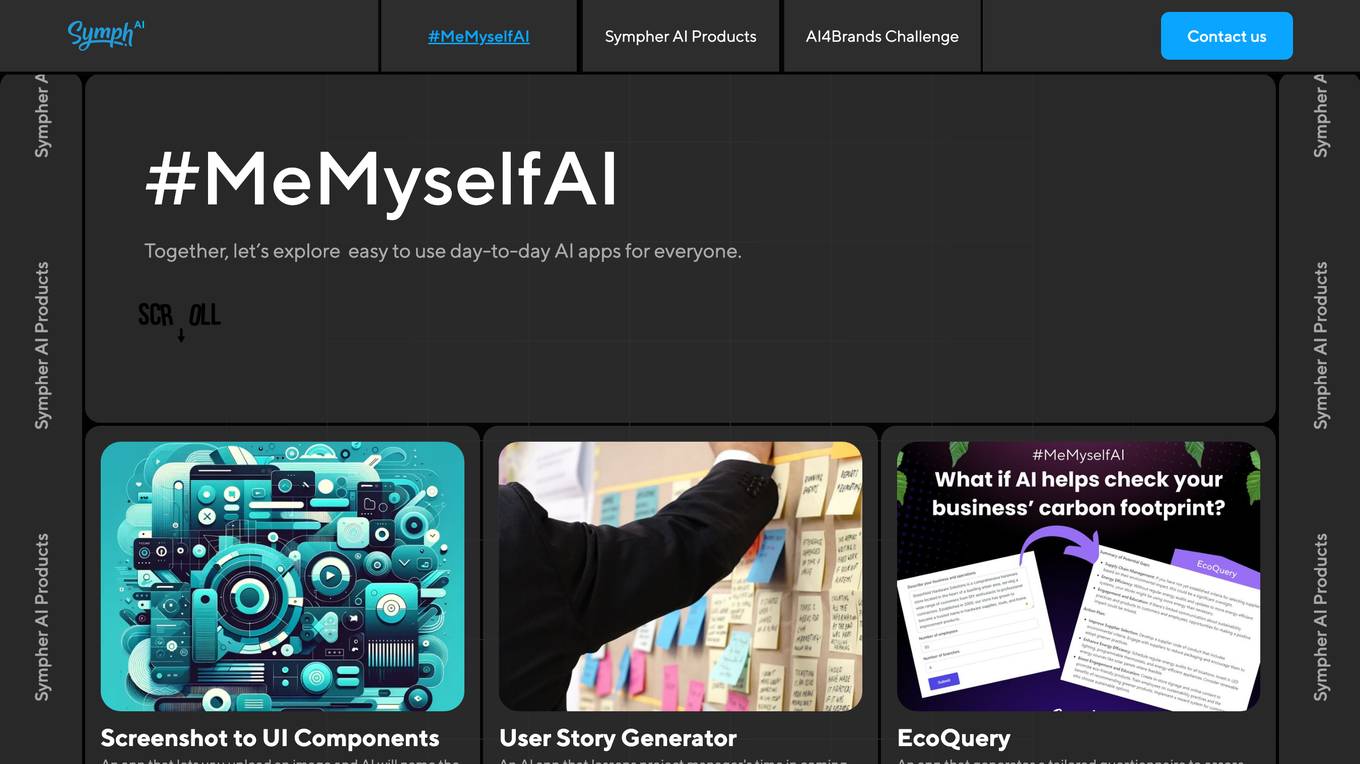
Sympher AI
Sympher AI offers a suite of easy-to-use AI apps for everyday tasks. These apps are designed to help users save time, improve productivity, and make better decisions. Some of the most popular Sympher AI apps include: * **MeMyselfAI:** This app helps users create personalized AI assistants that can automate tasks, answer questions, and provide support. * **Screenshot to UI Components:** This app helps users convert screenshots of UI designs into code. * **User Story Generator:** This app helps project managers quickly and easily generate user stories for their projects. * **EcoQuery:** This app helps businesses assess their carbon footprint and develop strategies to reduce their emissions. * **SensAI:** This app provides user feedback on uploaded images. * **Excel Sheets Function AI:** This app helps users create functions and formulas for Google Sheets or Microsoft Excel. * **ScriptSensei:** This app helps users create tailored setup scripts to streamline the start of their projects. * **Flutterflow Friend:** This app helps users answer their Flutterflow problems or issues. * **TestScenarioInsight:** This app generates test scenarios for apps before deploying. * **CaptionGen:** This app automatically turns images into captions.
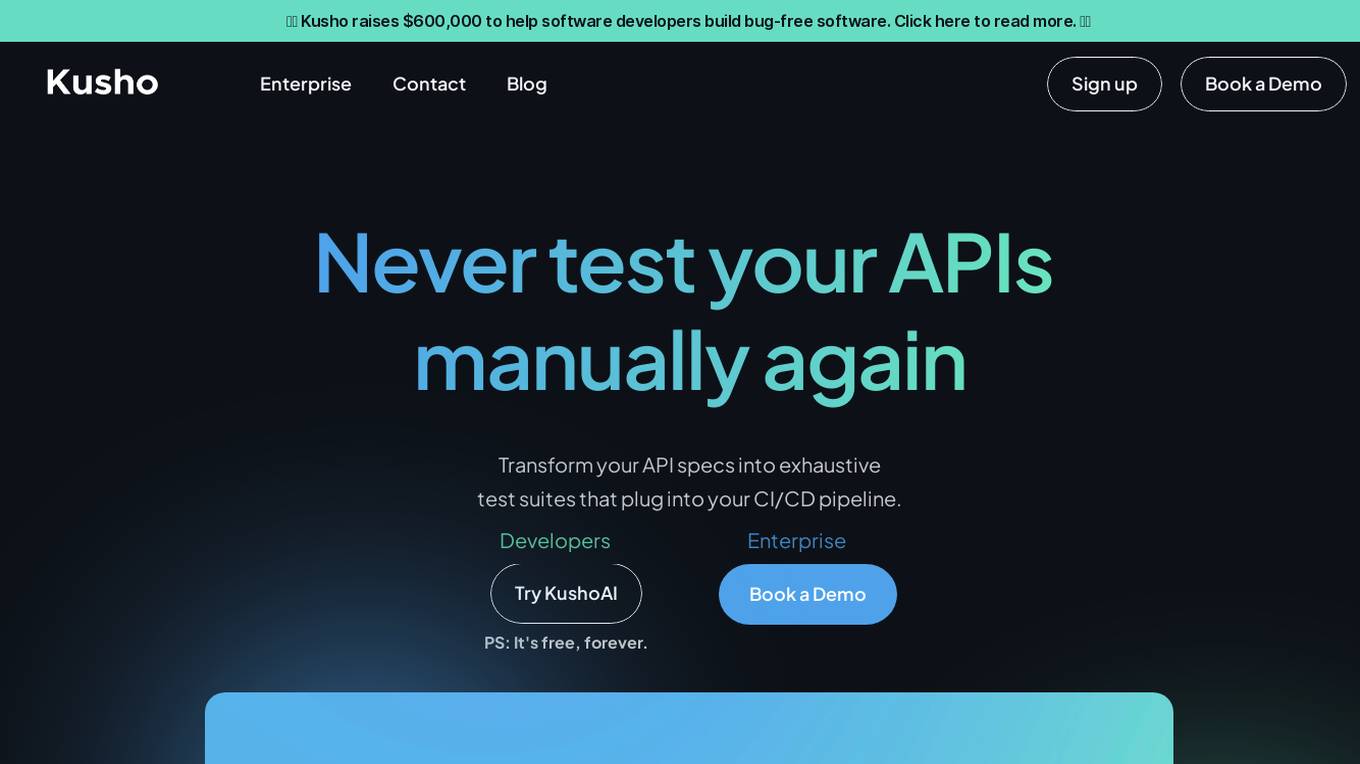
KushoAI
Kusho is an AI-powered tool designed to help software developers build bug-free software efficiently. It offers the capability to transform API specs into exhaustive test suites that seamlessly integrate into the CI/CD pipeline. With KushoAI, developers can generate robust AI-generated test suites, receive AI-analyzed test results, and modify code instantly based on real-time reports. The tool is customizable to meet company's context and understands natural language prompts to produce test case code instantly. KushoAI ensures maximum test coverage in minutes, saves hours of manual effort, and adapts to the codebase to prevent missing any test cases.
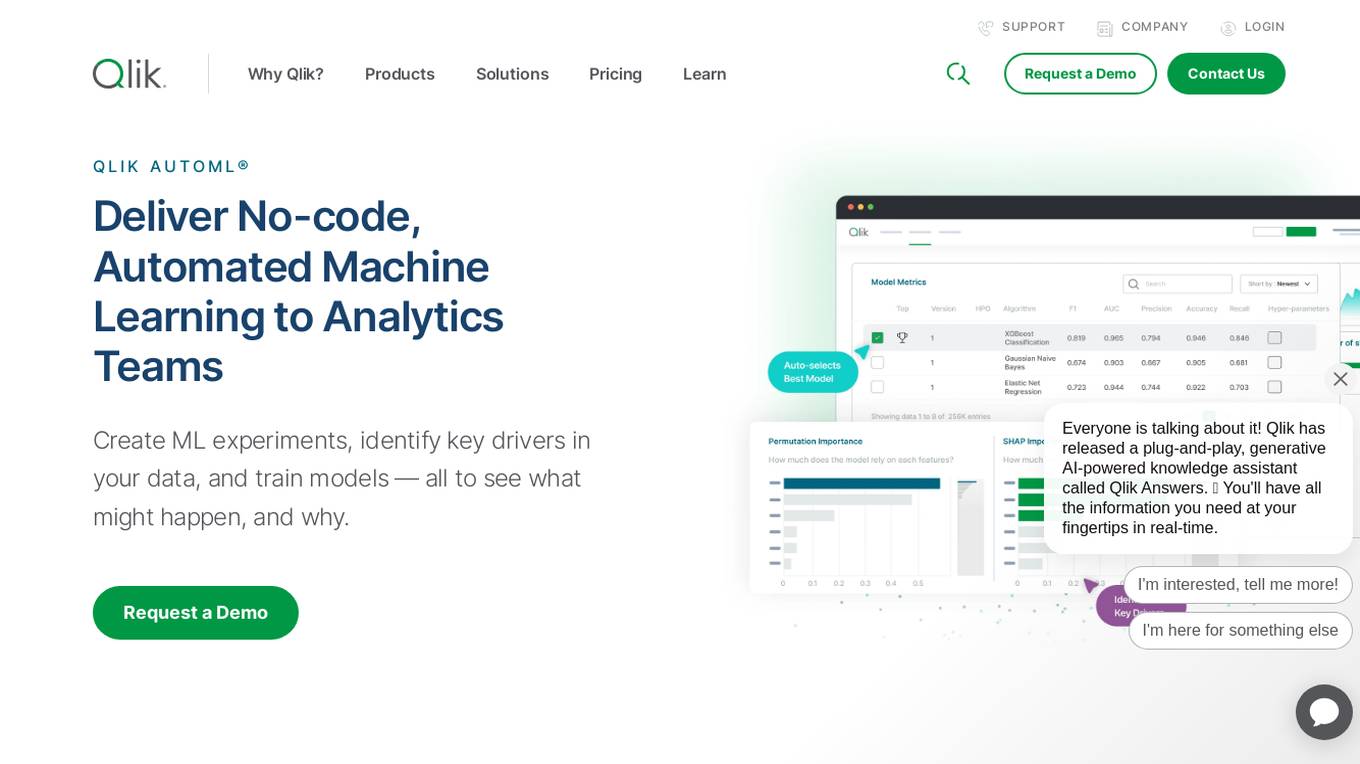
Qlik AutoML
Qlik AutoML is an AI tool that offers automated machine learning for analytics teams. It allows users to create machine learning experiments, identify key drivers in data, train models, and make predictions. With a focus on no-code machine learning, Qlik AutoML simplifies the process of generating predictive models and understanding outcomes. The tool enables users to explore predictive data, test what-if scenarios, and leverage AI-powered connectors for seamless integration with other AI and machine learning tools.
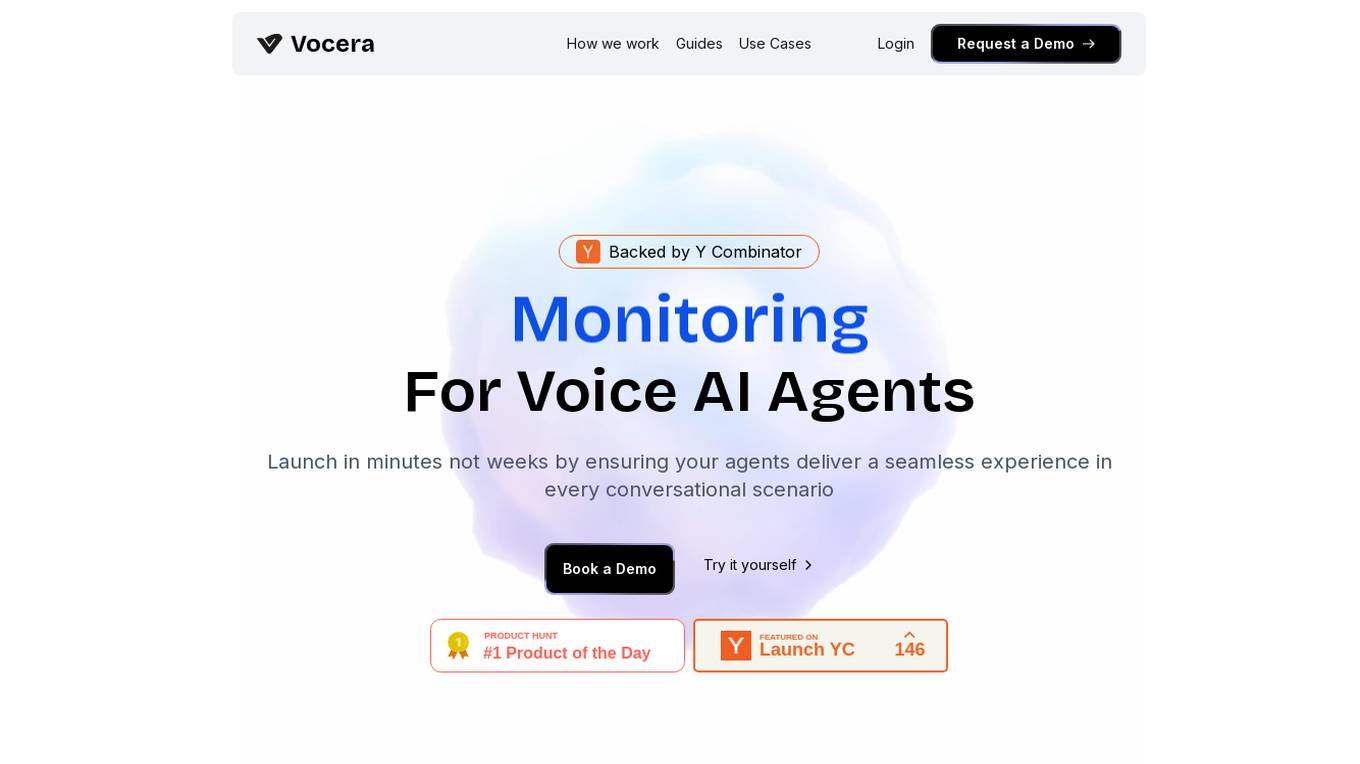
Vocera
Vocera is an AI voice agent testing tool that allows users to test and monitor voice AI agents efficiently. It enables users to launch voice agents in minutes, ensuring a seamless conversational experience. With features like testing against AI-generated datasets, simulating scenarios, and monitoring AI performance, Vocera helps in evaluating and improving voice agent interactions. The tool provides real-time insights, detailed logs, and trend analysis for optimal performance, along with instant notifications for errors and failures. Vocera is designed to work for everyone, offering an intuitive dashboard and data-driven decision-making for continuous improvement.
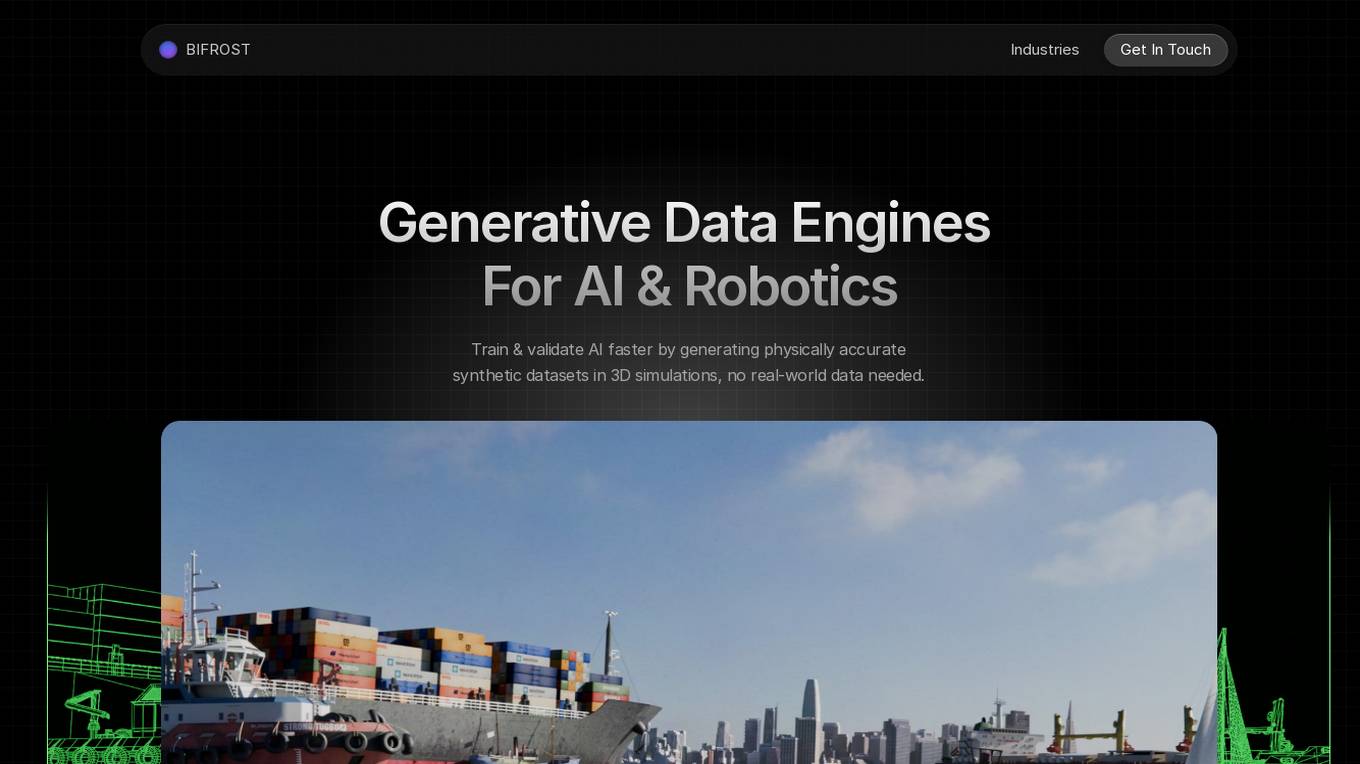
Bifrost AI
Bifrost AI is a data generation engine designed for AI and robotics applications. It enables users to train and validate AI models faster by generating physically accurate synthetic datasets in 3D simulations, eliminating the need for real-world data. The platform offers pixel-perfect labels, scenario metadata, and a simulated 3D world to enhance AI understanding. Bifrost AI empowers users to create new scenarios and datasets rapidly, stress test AI perception, and improve model performance. It is built for teams at every stage of AI development, offering features like automated labeling, class imbalance correction, and performance enhancement.

Meticulous
Meticulous is an AI tool that revolutionizes frontend testing by automatically generating and maintaining test suites for web applications. It eliminates the need for manual test writing and maintenance, ensuring comprehensive test coverage without the hassle. Meticulous uses AI to monitor user interactions, generate test suites, and provide visual end-to-end testing capabilities. It offers lightning-fast testing, parallelized across a compute cluster, and integrates seamlessly with existing test suites. The tool is battle-tested to handle complex applications and provides developers with confidence in their code changes.
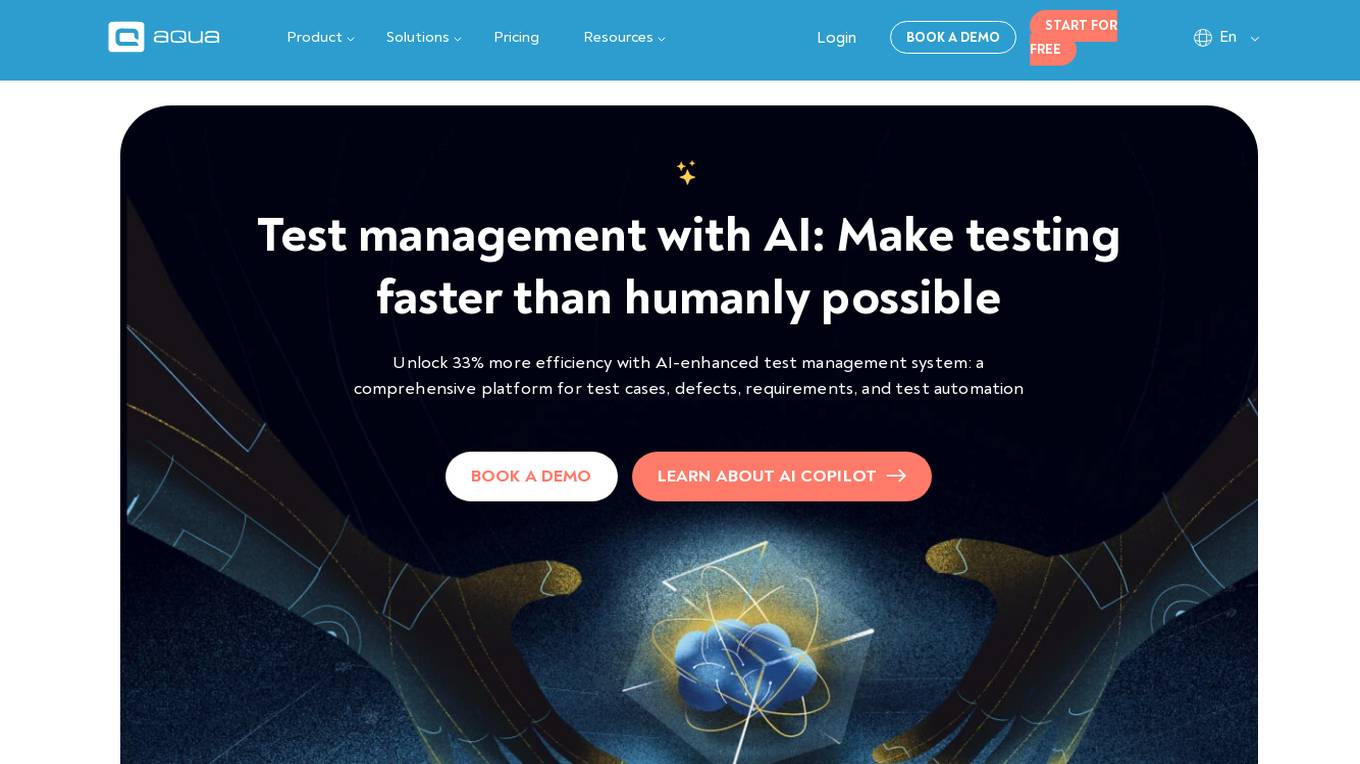
aqua
aqua is a comprehensive Quality Assurance (QA) management tool designed to streamline testing processes and enhance testing efficiency. It offers a wide range of features such as AI Copilot, bug reporting, test management, requirements management, user acceptance testing, and automation management. aqua caters to various industries including banking, insurance, manufacturing, government, tech companies, and medical sectors, helping organizations improve testing productivity, software quality, and defect detection ratios. The tool integrates with popular platforms like Jira, Jenkins, JMeter, and offers both Cloud and On-Premise deployment options. With AI-enhanced capabilities, aqua aims to make testing faster, more efficient, and error-free.
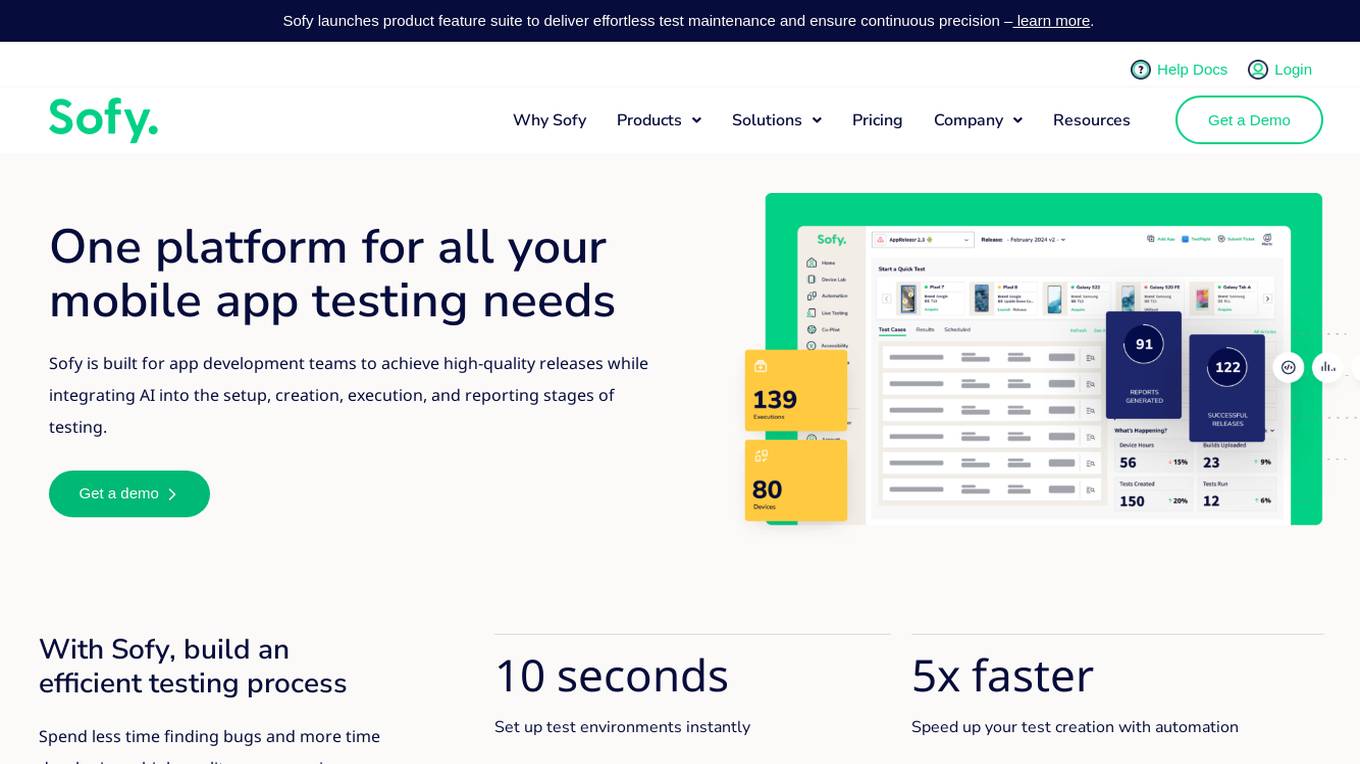
Sofy
Sofy is a revolutionary no-code testing platform for mobile applications that integrates AI to streamline the testing process. It offers features such as manual and ad-hoc testing, no-code automation, AI-powered test case generation, and real device testing. Sofy helps app development teams achieve high-quality releases by simplifying test maintenance and ensuring continuous precision. With a focus on efficiency and user experience, Sofy is trusted by top industries for its all-in-one testing solution.
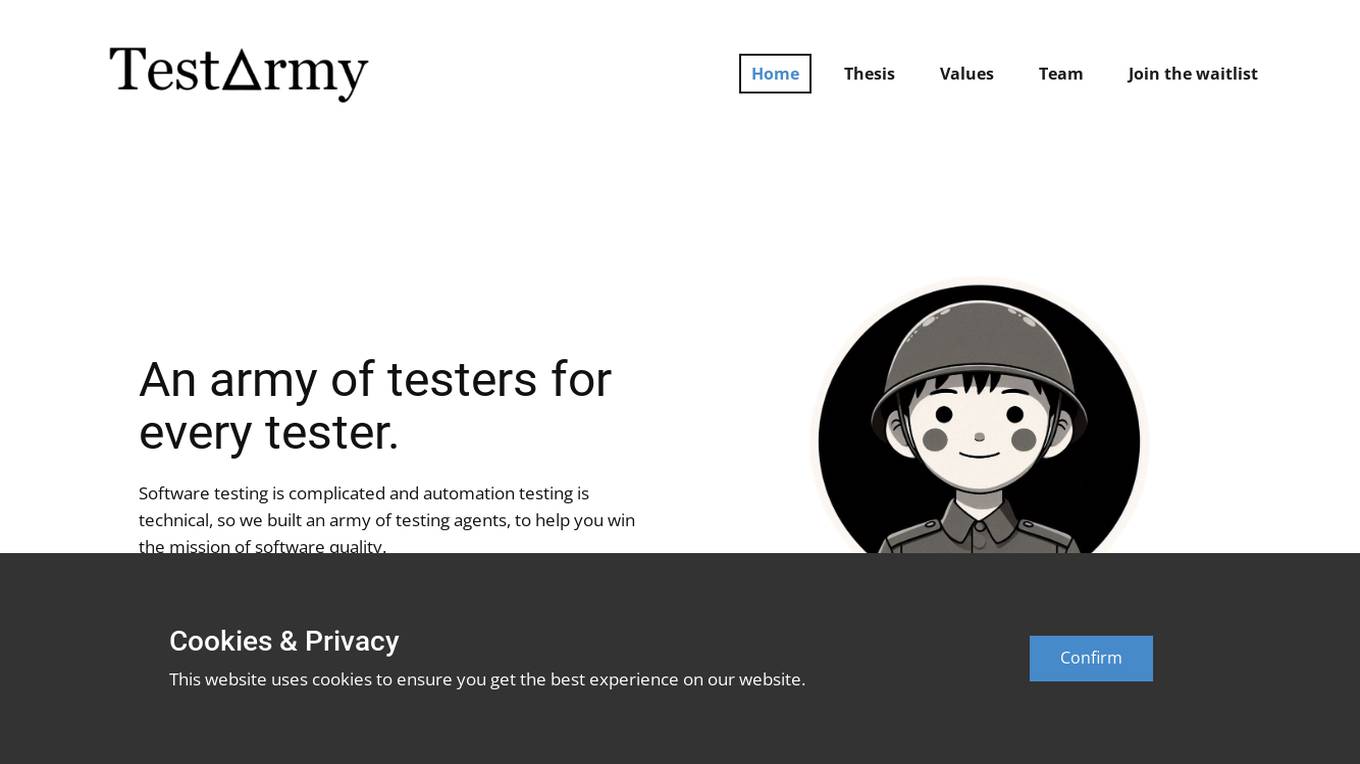
TestArmy
TestArmy is an AI-driven software testing platform that offers an army of testing agents to help users achieve software quality by balancing cost, speed, and quality. The platform leverages AI agents to generate Gherkin tests based on user specifications, automate test execution, and provide detailed logs and suggestions for test maintenance. TestArmy is designed for rapid scaling and adaptability to changes in the codebase, making it a valuable tool for both technical and non-technical users.
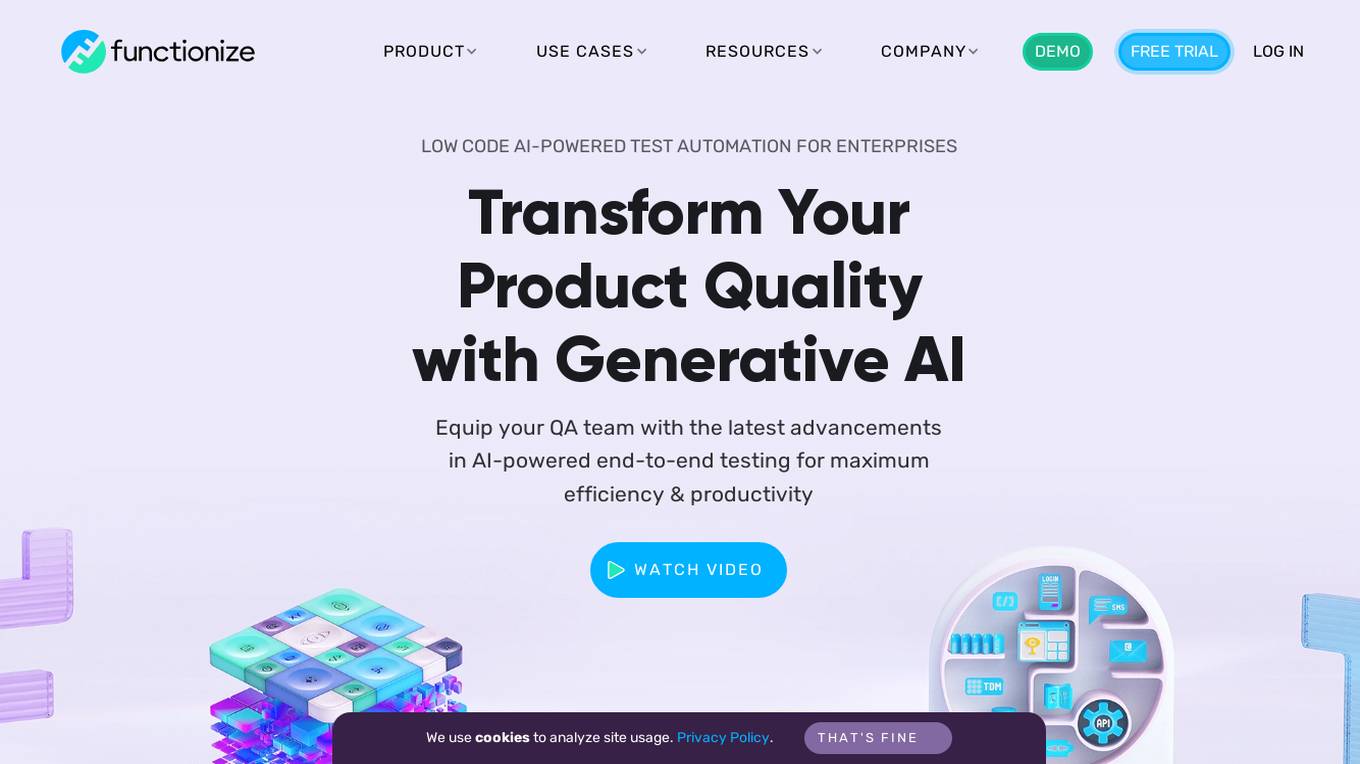
Functionize
Functionize is an AI-powered test automation platform that helps enterprises improve their product quality and release faster. It uses machine learning to automate test creation, maintenance, and execution, and provides a range of features to help teams collaborate and manage their testing process. Functionize integrates with popular CI/CD tools and DevOps pipelines, and offers a range of pricing options to suit different needs.
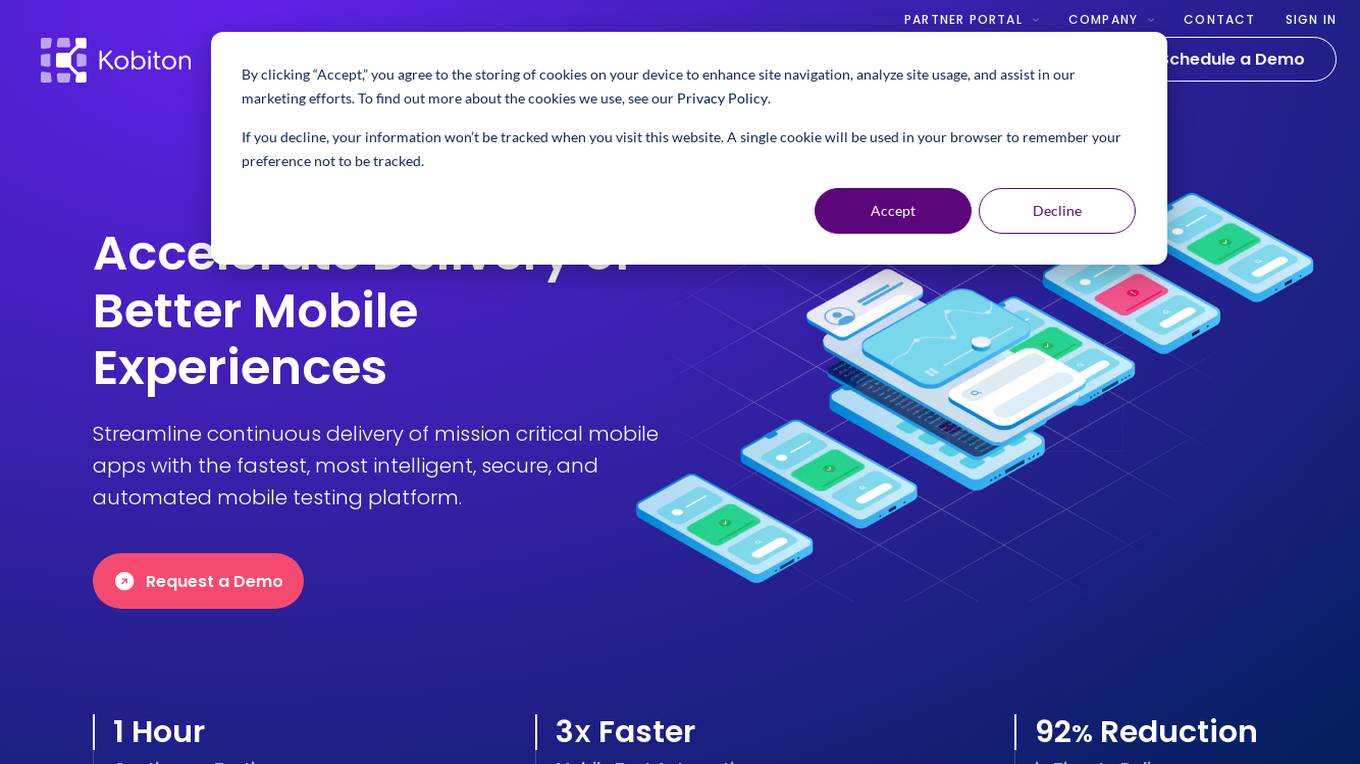
Kobiton
Kobiton is a mobile device testing platform that accelerates app delivery, improves productivity, and maximizes mobile app impact. It offers a comprehensive suite of features for real-device testing, visual testing, performance testing, accessibility testing, and more. With AI-augmented testing and no-code validations, Kobiton helps enterprises streamline continuous delivery of mobile apps. The platform provides secure and scalable device lab management, mobile device cloud, and integration with DevOps toolchain for enhanced productivity and efficiency.
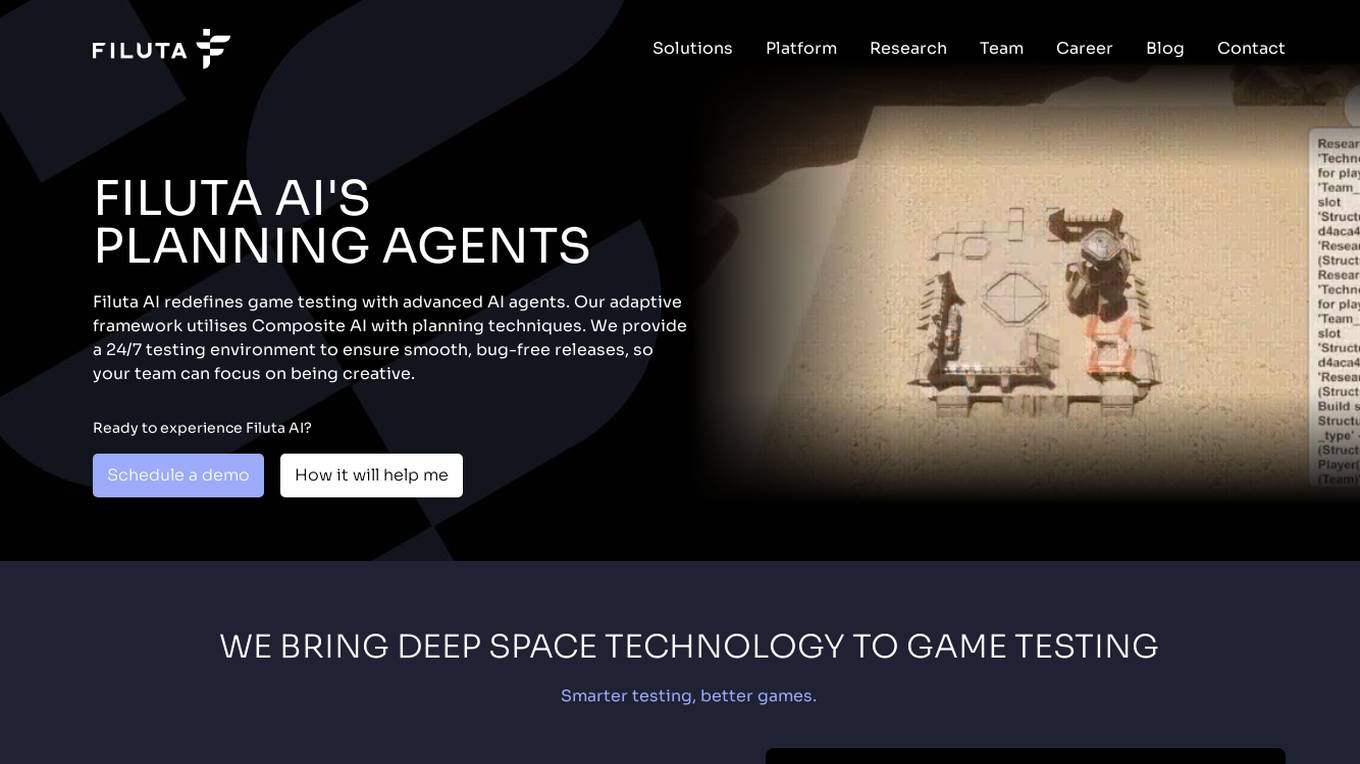
Filuta AI
Filuta AI is an advanced AI application that redefines game testing with planning agents. It utilizes Composite AI with planning techniques to provide a 24/7 testing environment for smooth, bug-free releases. The application brings deep space technology to game testing, enabling intelligent agents to analyze game states, adapt in real time, and execute action sequences to achieve test goals. Filuta AI offers goal-driven testing, adaptive exploration, detailed insights, and shorter development cycles, making it a valuable tool for game developers, QA leads, game designers, automation engineers, and producers.

Testsigma
Testsigma is a cloud-based test automation platform that enables teams to create, execute, and maintain automated tests for web, mobile, and API applications. It offers a range of features including natural language processing (NLP)-based scripting, record-and-playback capabilities, data-driven testing, and AI-driven test maintenance. Testsigma integrates with popular CI/CD tools and provides a marketplace for add-ons and extensions. It is designed to simplify and accelerate the test automation process, making it accessible to testers of all skill levels.
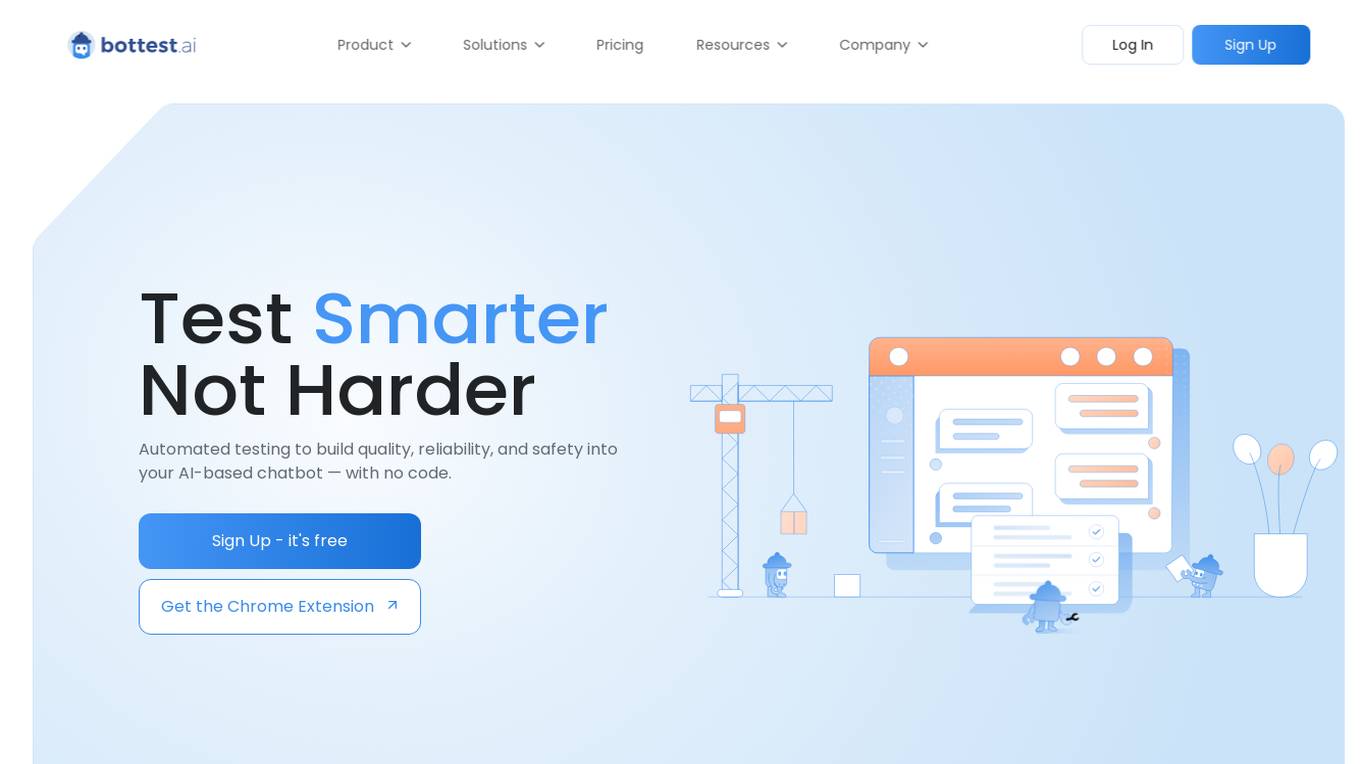
bottest.ai
bottest.ai is an AI-powered chatbot testing tool that focuses on ensuring quality, reliability, and safety in AI-based chatbots. The tool offers automated testing capabilities without the need for coding, making it easy for users to test their chatbots efficiently. With features like regression testing, performance testing, multi-language testing, and AI-powered coverage, bottest.ai provides a comprehensive solution for testing chatbots. Users can record tests, evaluate responses, and improve their chatbots based on analytics provided by the tool. The tool also supports enterprise readiness by allowing scalability, permissions management, and integration with existing workflows.
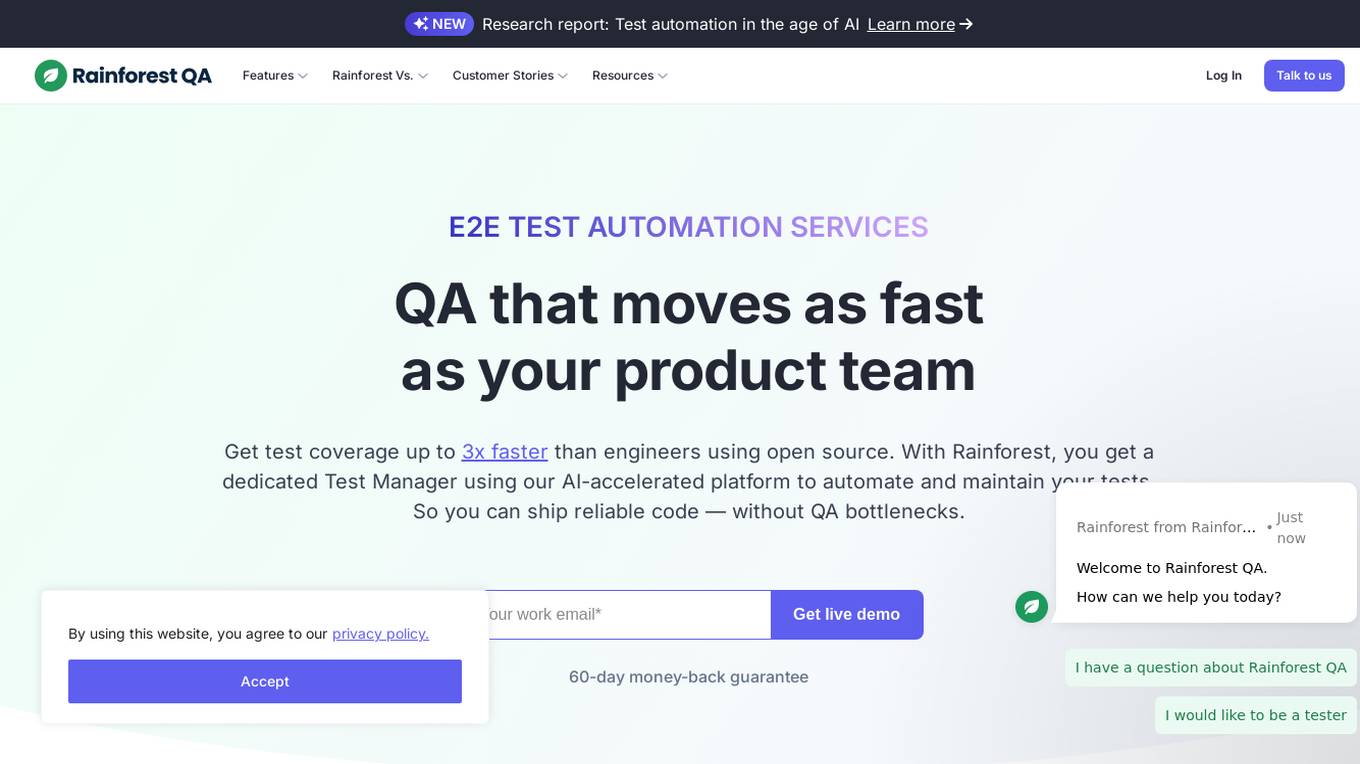
Rainforest QA
Rainforest QA is an AI-powered test automation platform designed for SaaS startups to streamline and accelerate their testing processes. It offers AI-accelerated testing, no-code test automation, and expert QA services to help teams achieve reliable test coverage and faster release cycles. Rainforest QA's platform integrates with popular tools, provides detailed insights for easy debugging, and ensures visual-first testing for a seamless user experience. With a focus on automating end-to-end tests, Rainforest QA aims to eliminate QA bottlenecks and help teams ship bug-free code with confidence.
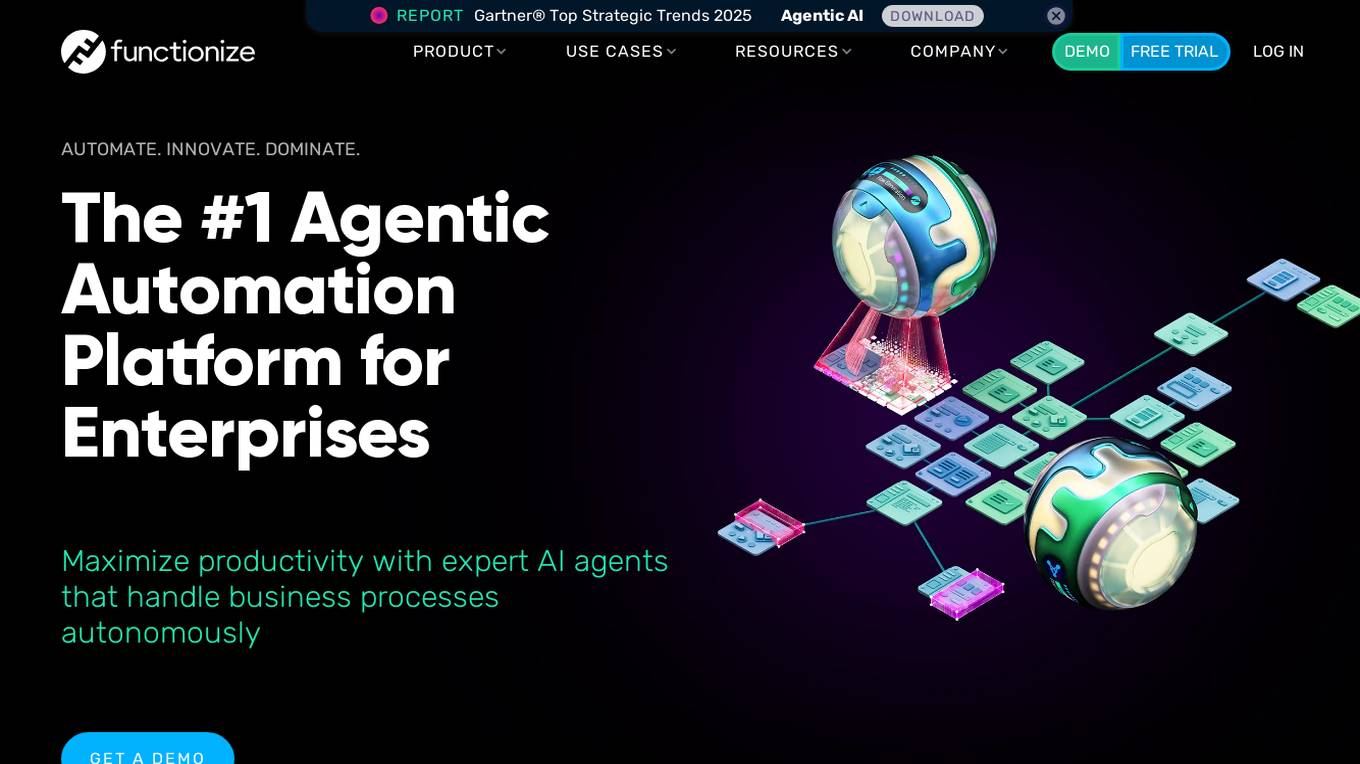
Functionize
Functionize is an AI Agentic Automation Platform for Enterprises that offers expert AI agents to handle business processes autonomously. The platform utilizes deep learning neural networks to deliver unparalleled performance across various enterprise applications. Functionize's AI agents run autonomously, self-heal workflows, and redefine efficiency and reliability in automation. The platform provides immediate value with pretrained automation, evolves with operational environments, and ensures seamless adaptability and precision in every task. Functionize helps mitigate risks, unlock gains, and support digital transformation for enterprises.
0 - Open Source AI Tools
20 - OpenAI Gpts
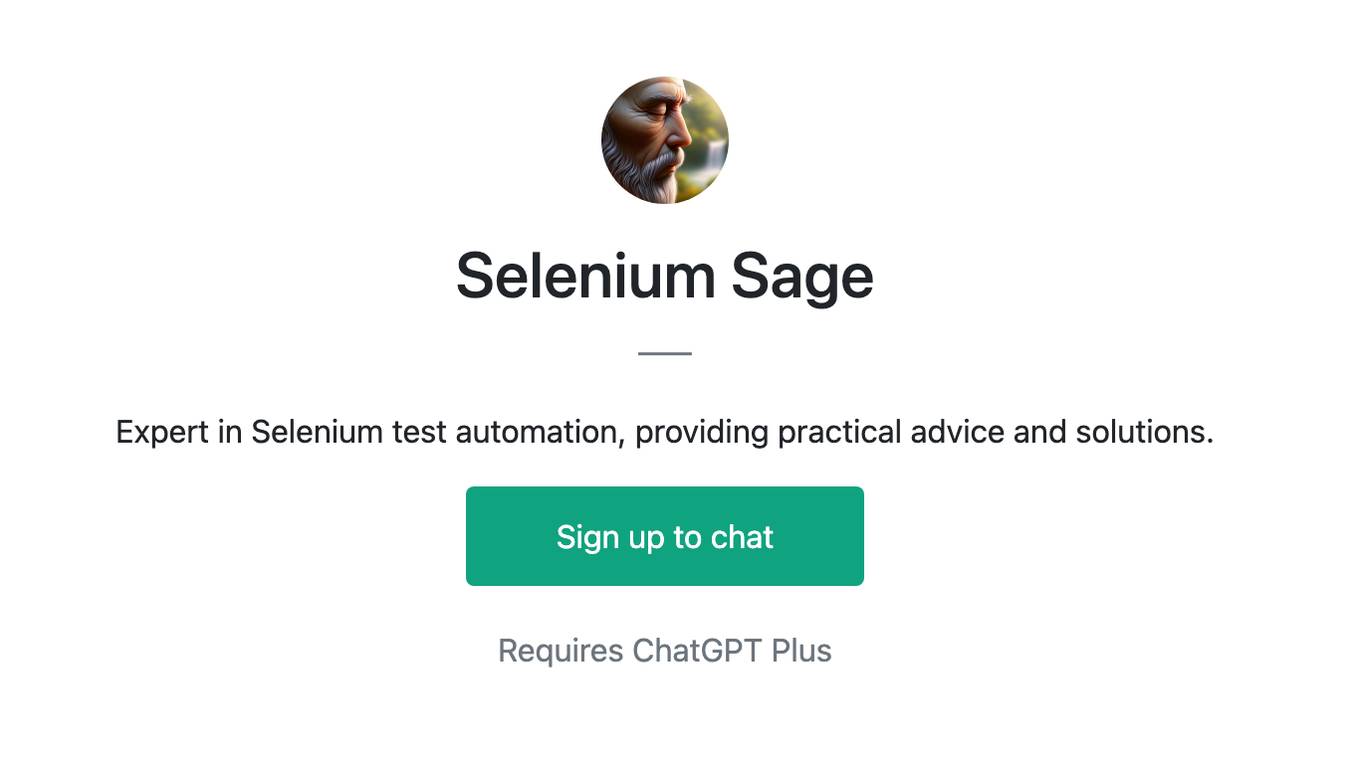
Selenium Sage
Expert in Selenium test automation, providing practical advice and solutions.
SIP Expert
A senior VoIP engineer with expertise in SIP, RTP, IMS, and WebRTC. Kinda employed at sipfront.com, your telco test automation company.
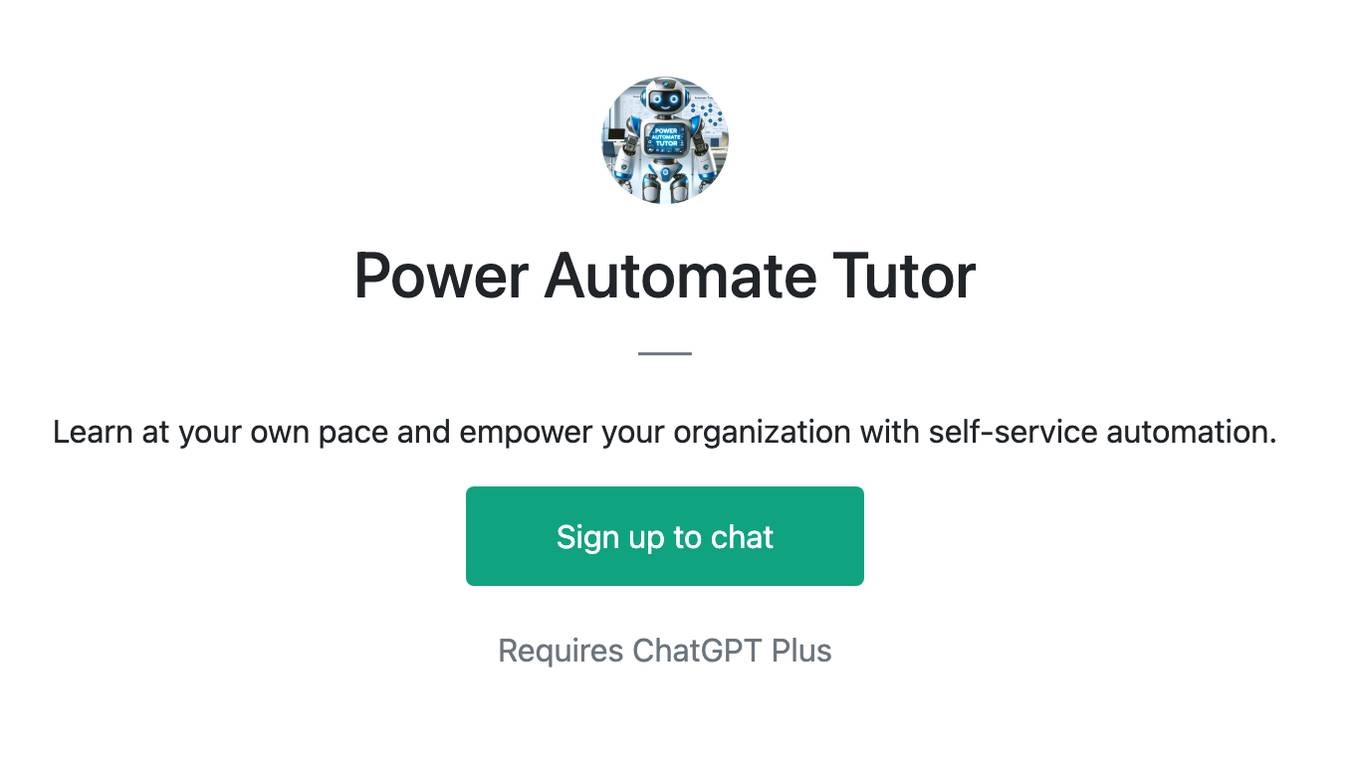
Power Automate Tutor
Learn at your own pace and empower your organization with self-service automation.

Self Builder
I automate GPT creation, saving + 99% time and securing data, preventing someone steal your idea.
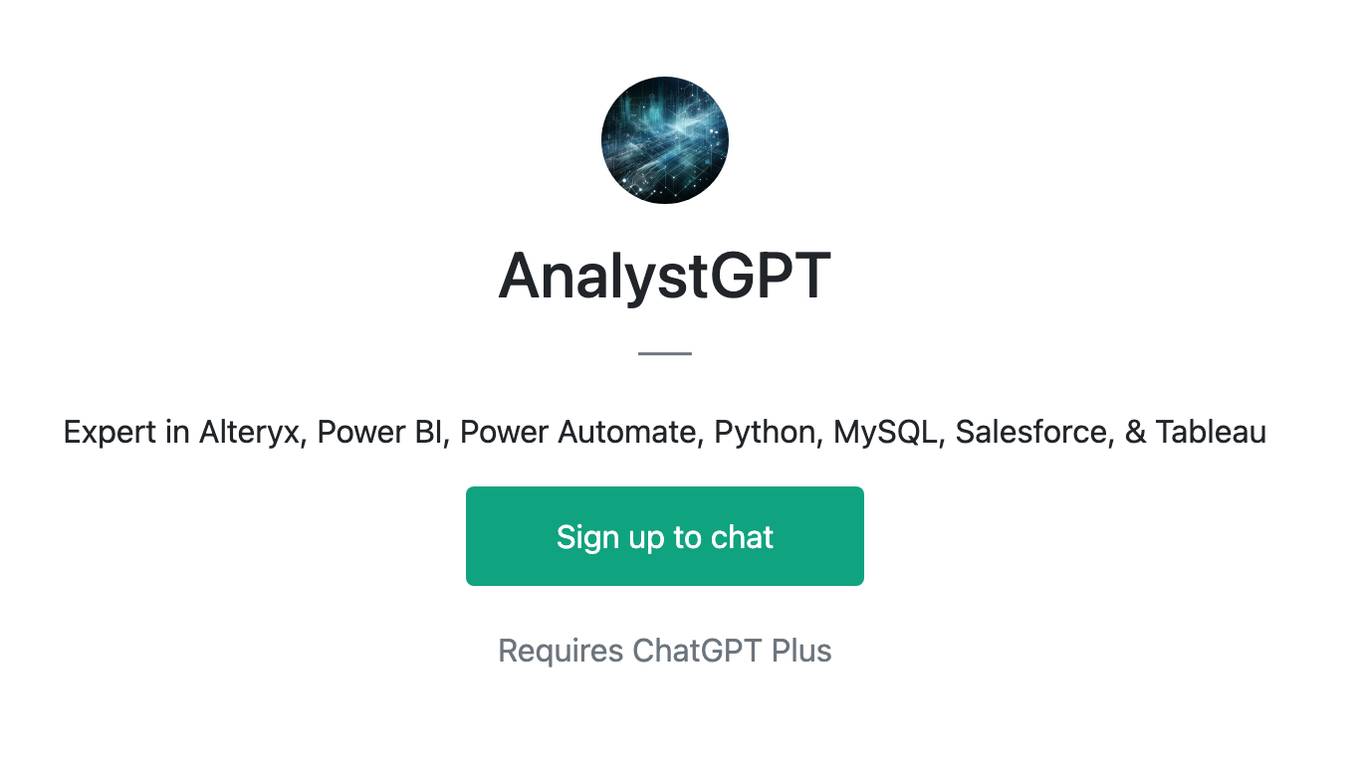
AnalystGPT
Expert in Alteryx, Power BI, Power Automate, Python, MySQL, Salesforce, & Tableau
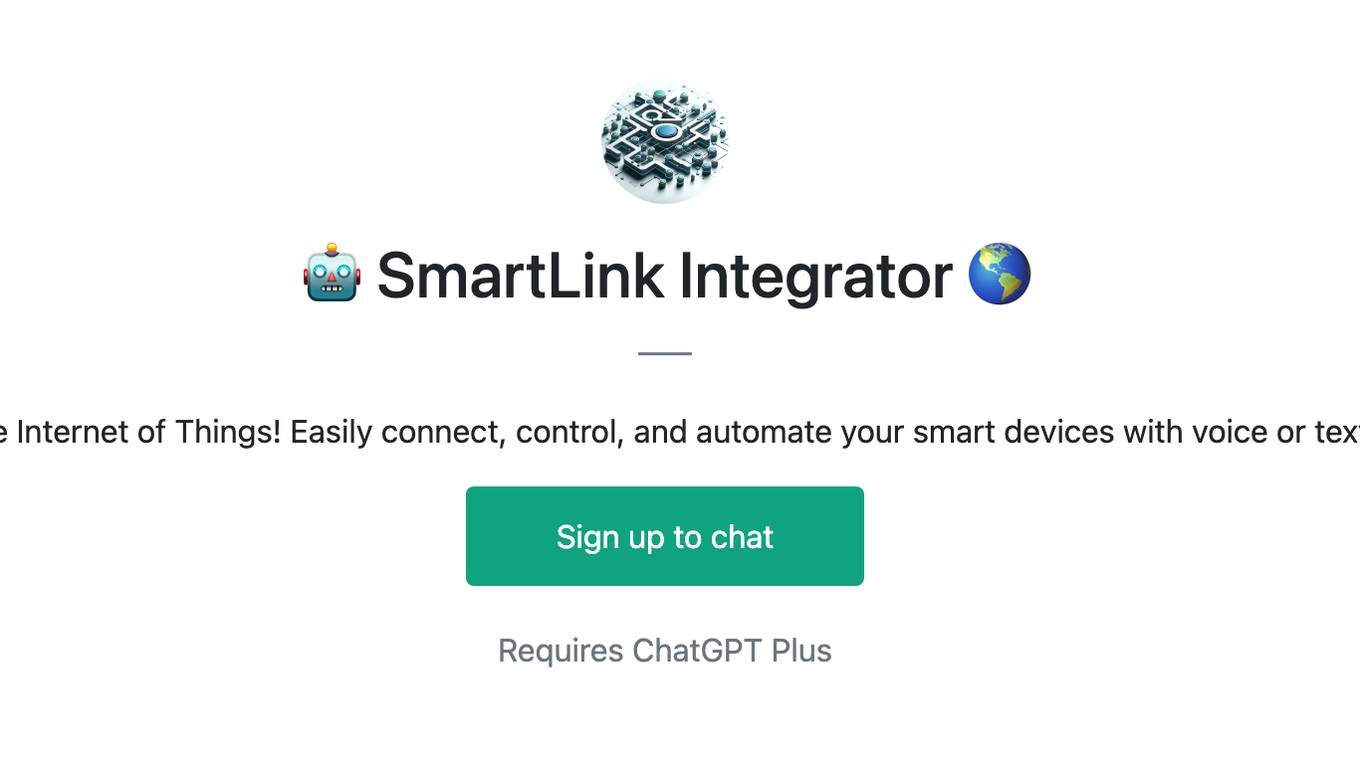
🤖 SmartLink Integrator 🌎
Your AI bridge to the Internet of Things! Easily connect, control, and automate your smart devices with voice or text commands. 🏠💎
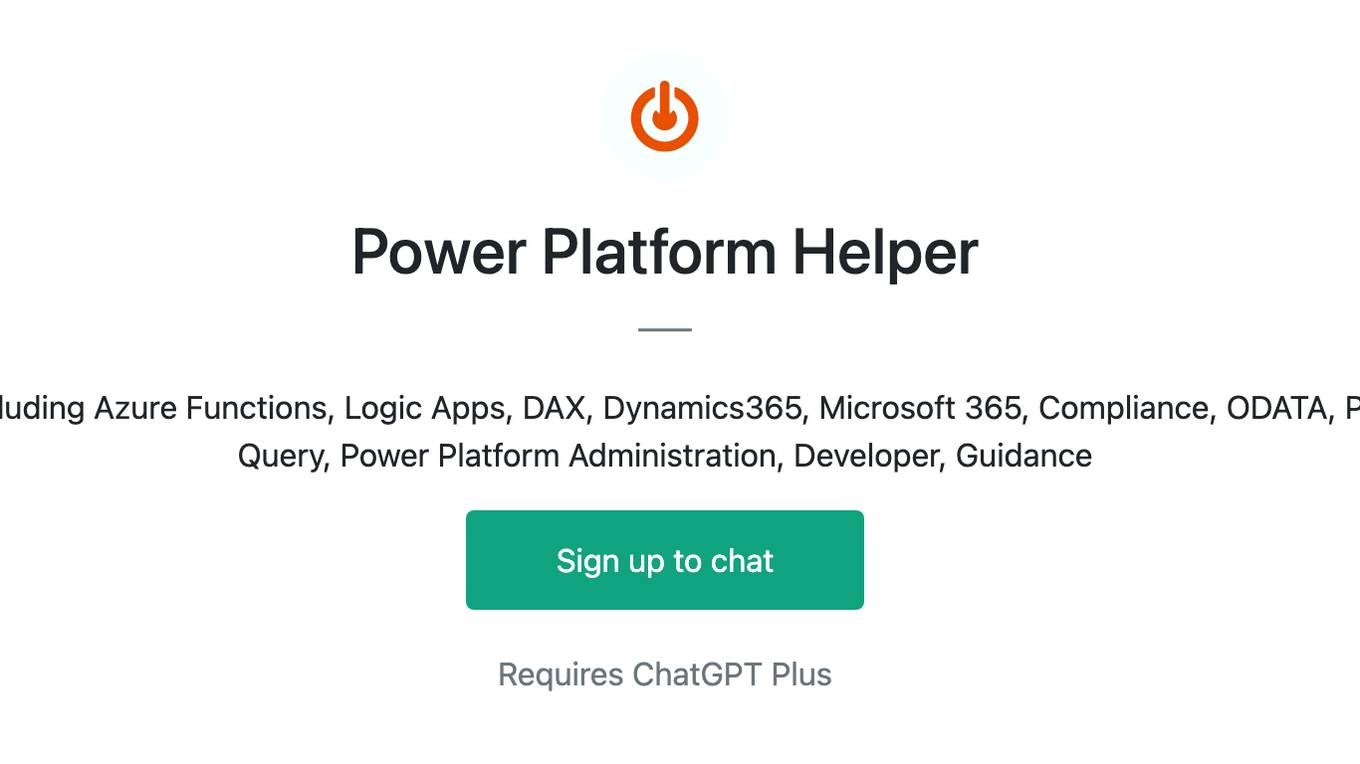
Power Platform Helper
Trained on learn.microsoft.com content including Azure Functions, Logic Apps, DAX, Dynamics365, Microsoft 365, Compliance, ODATA, Power Agents, Apps, Automate, BI, Pages, Query, Power Platform Administration, Developer, Guidance
